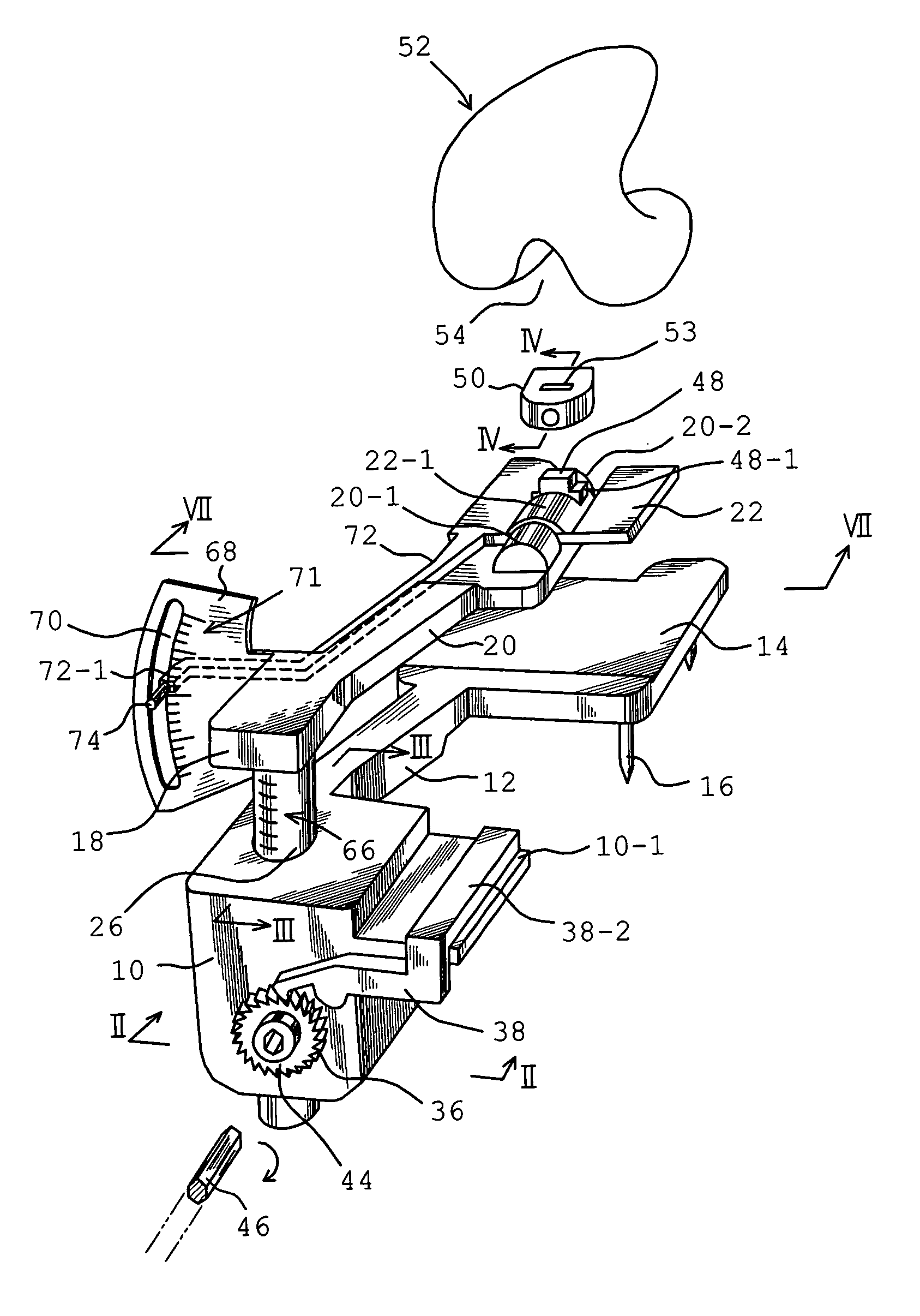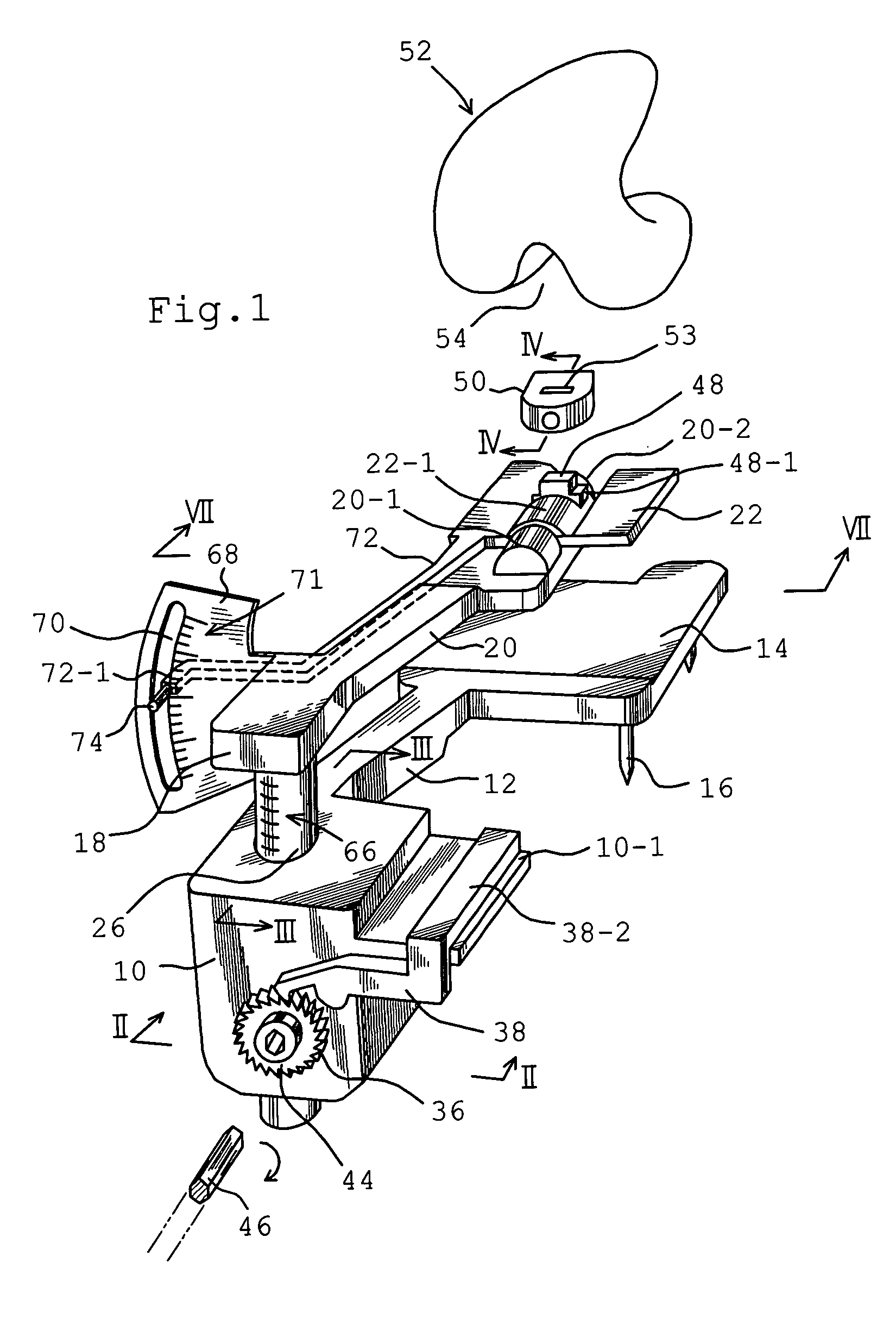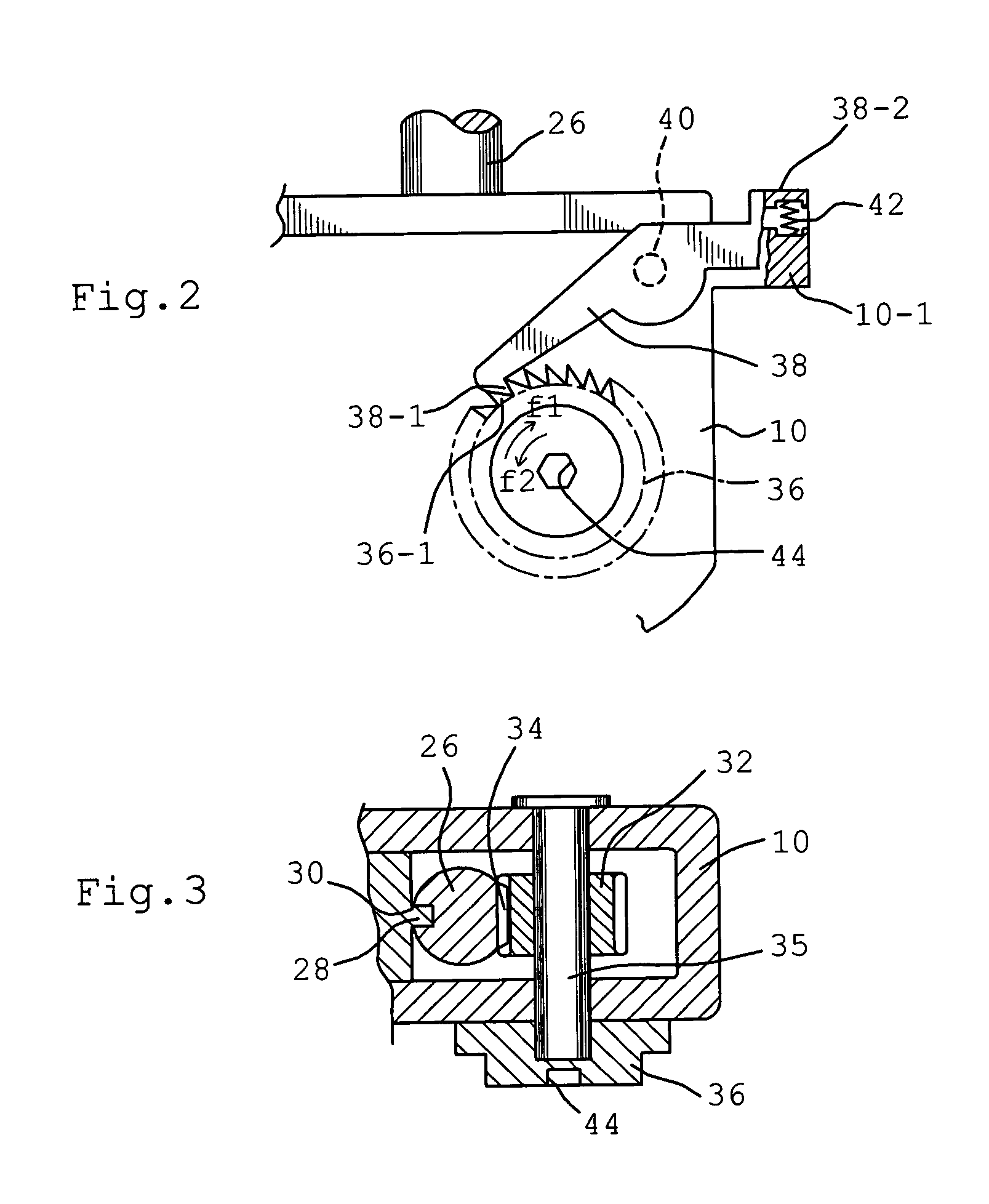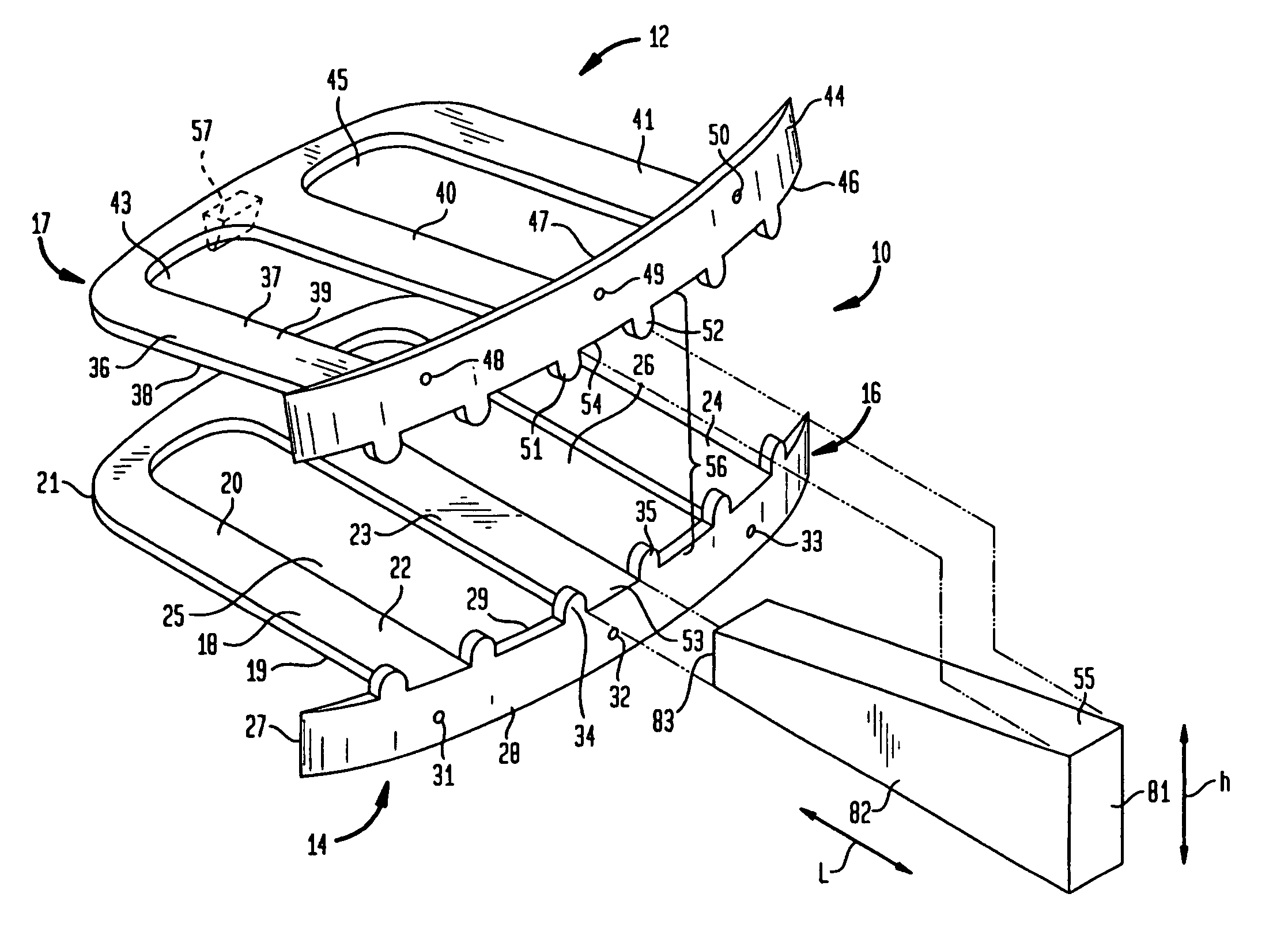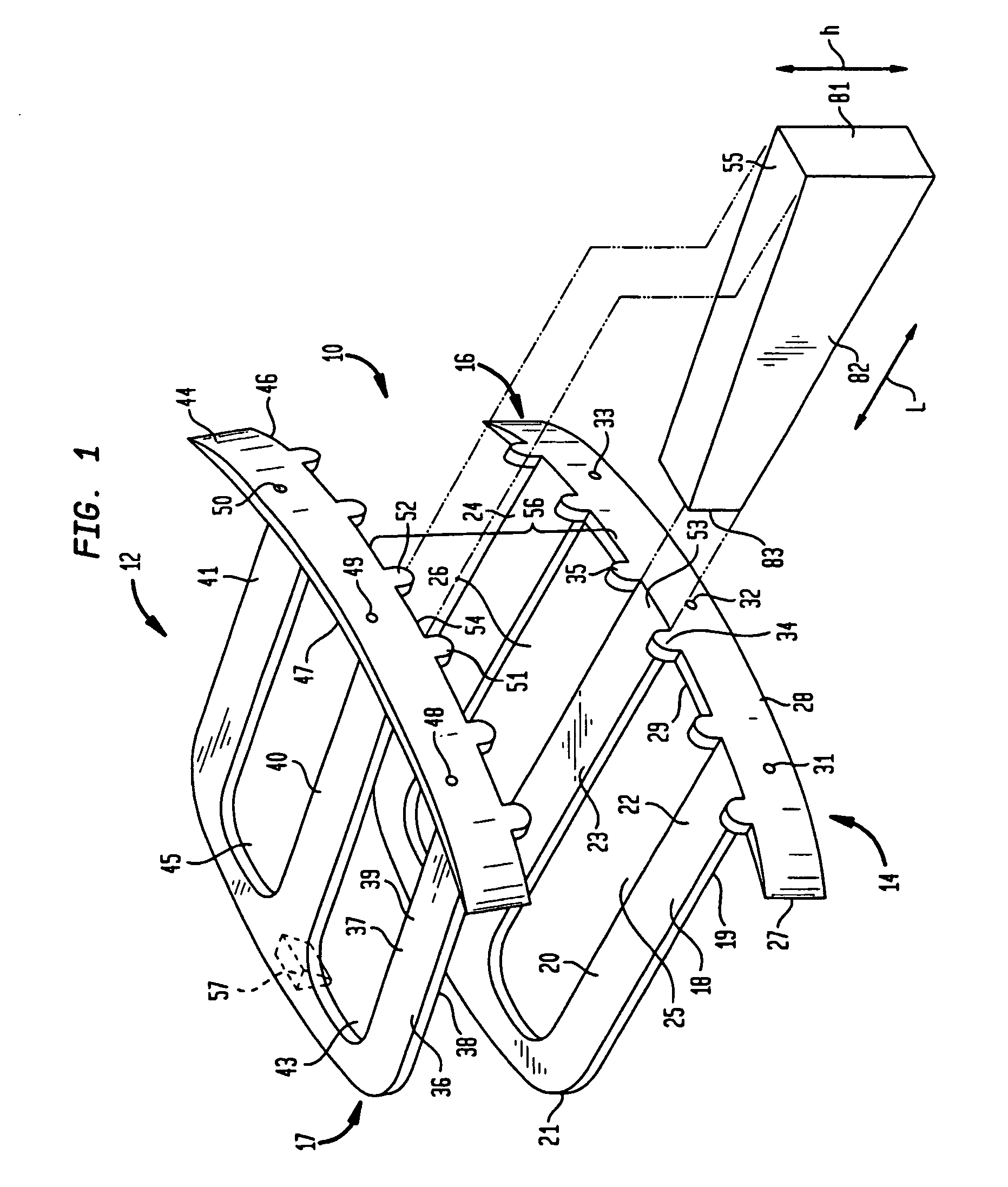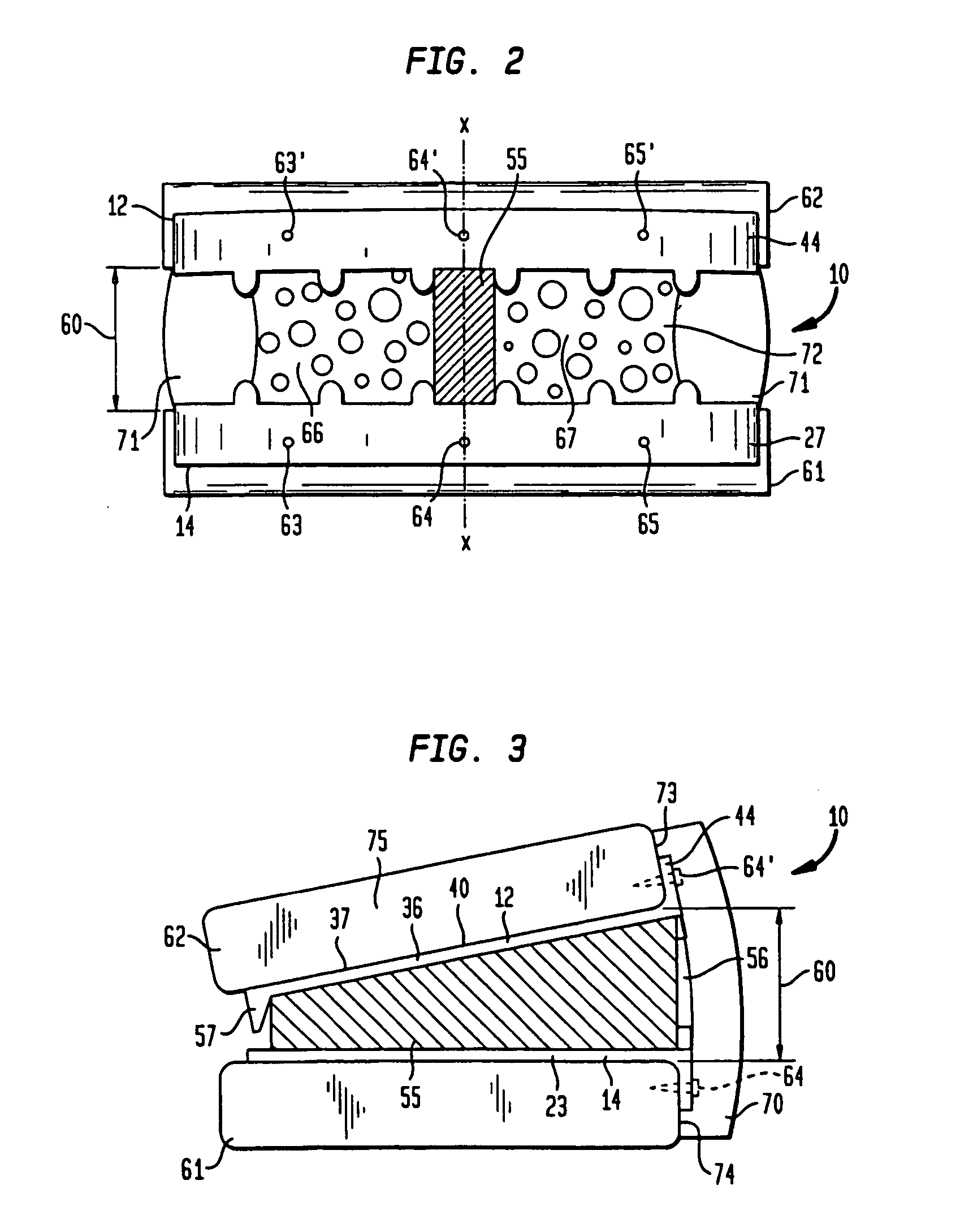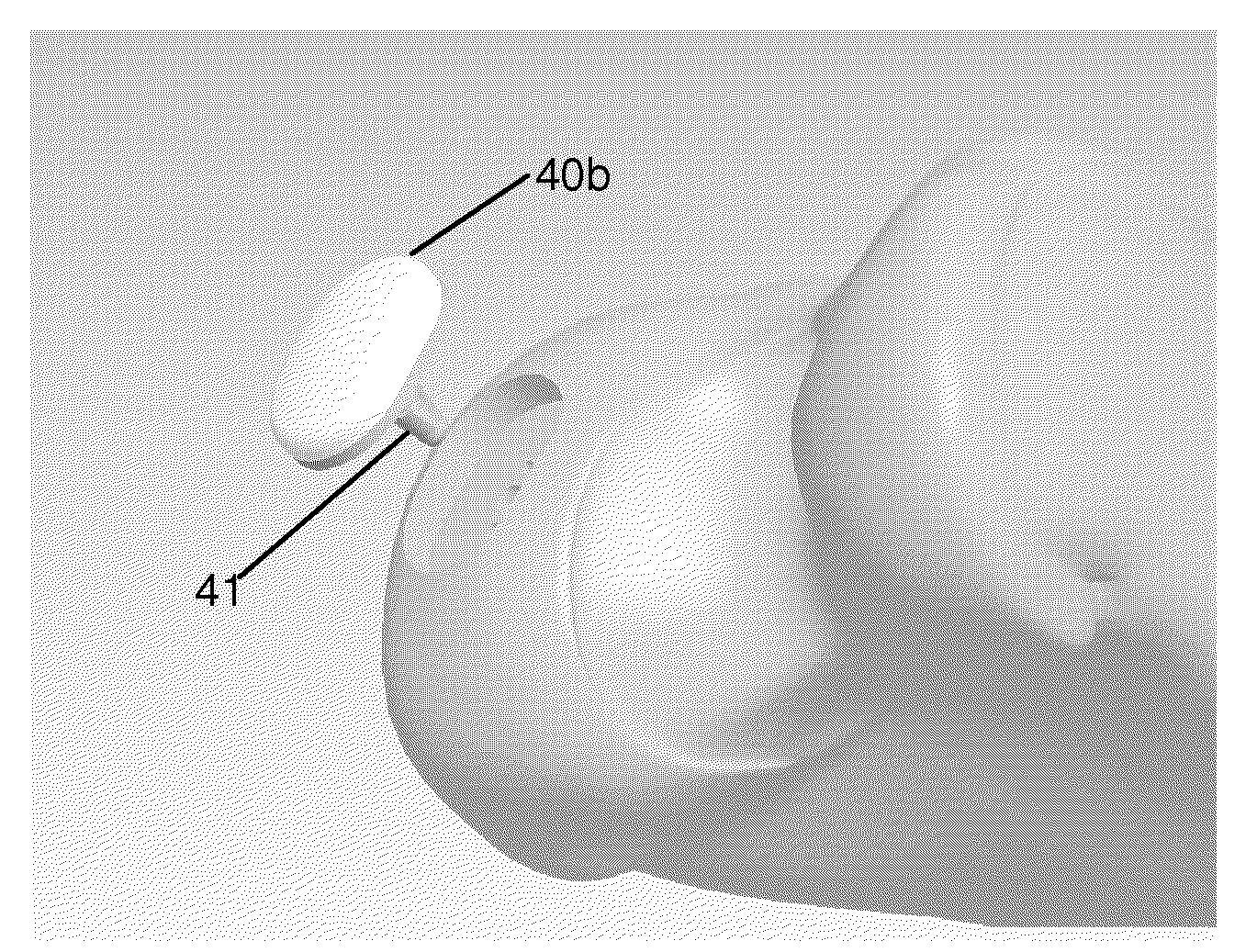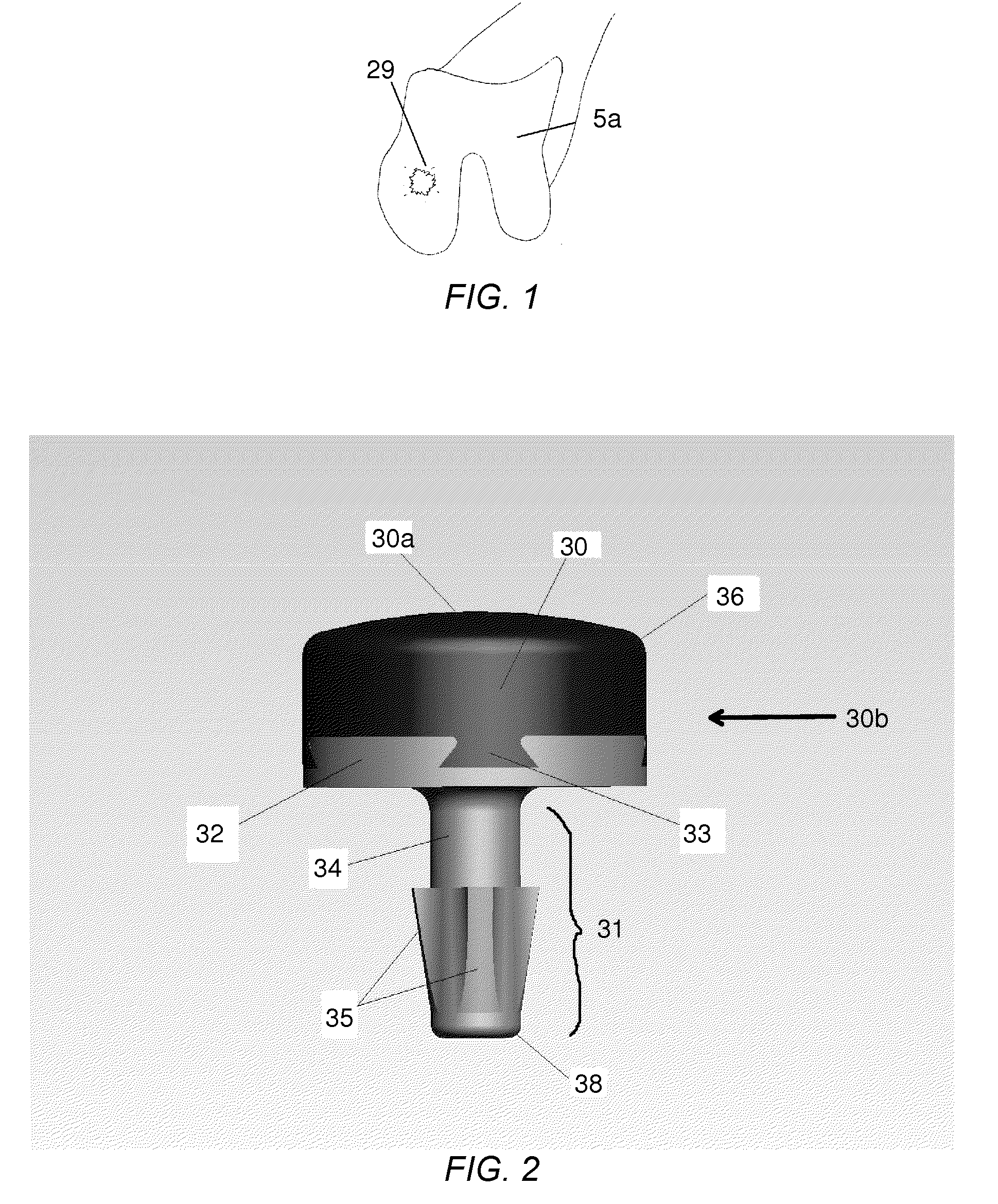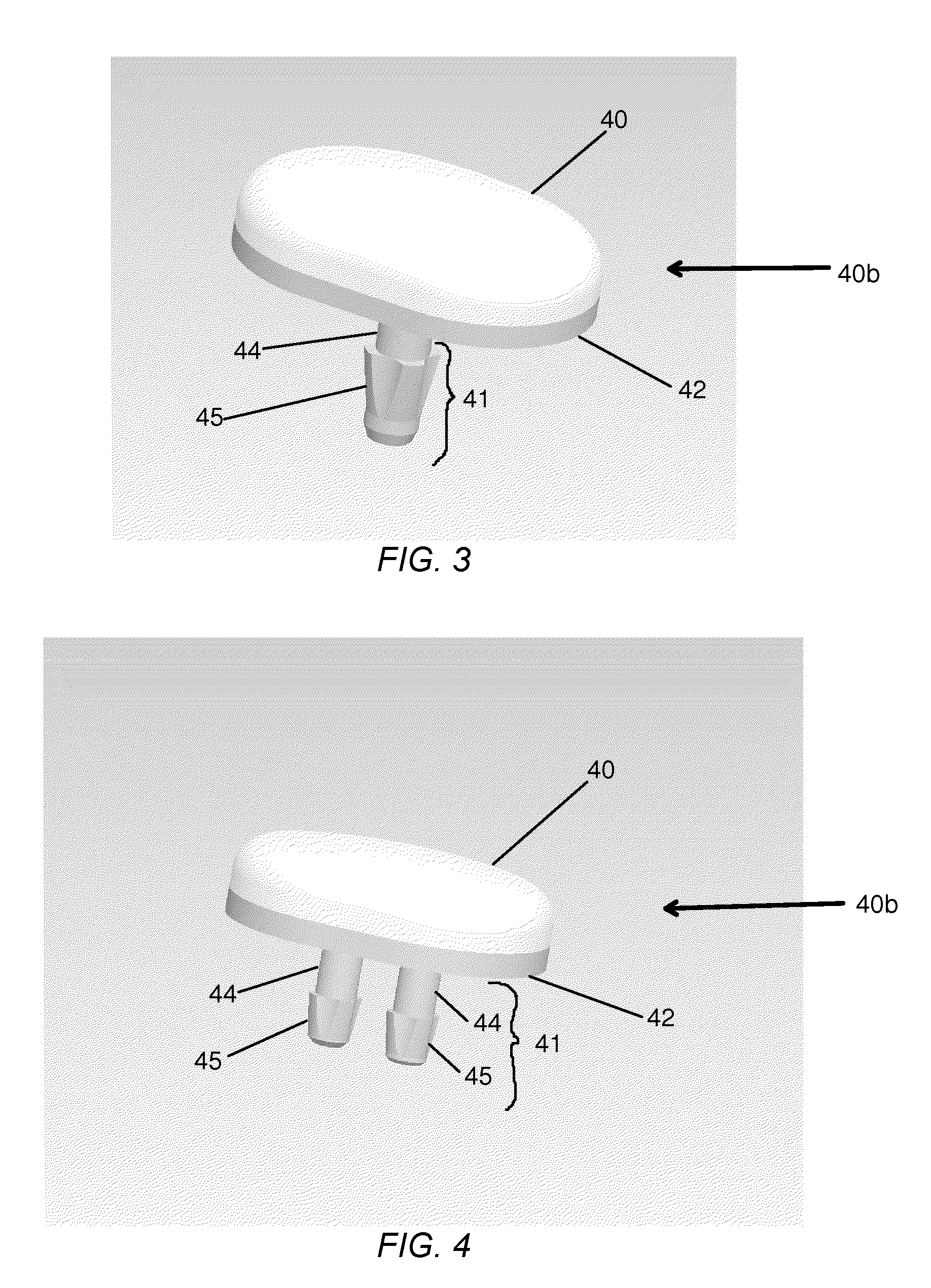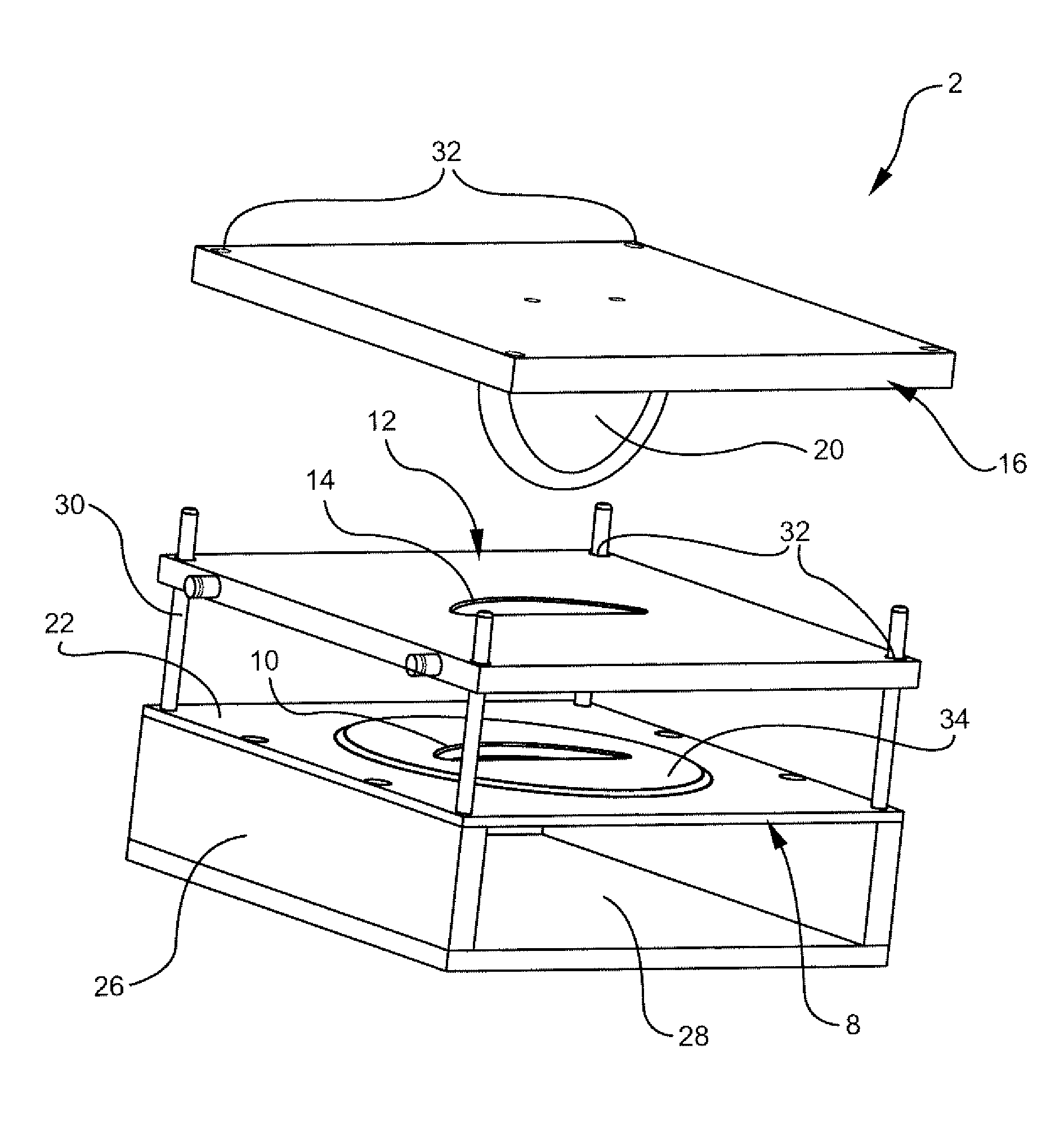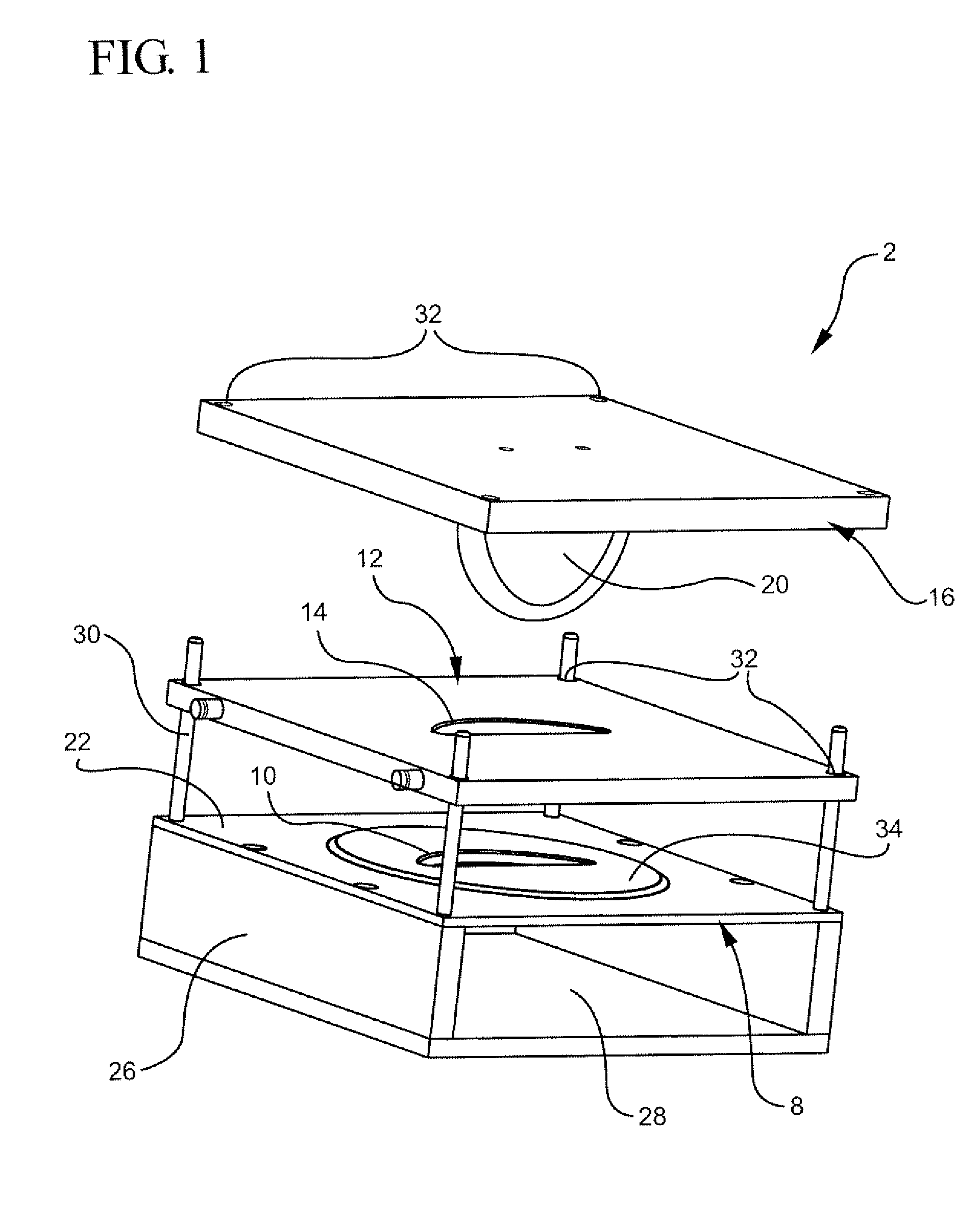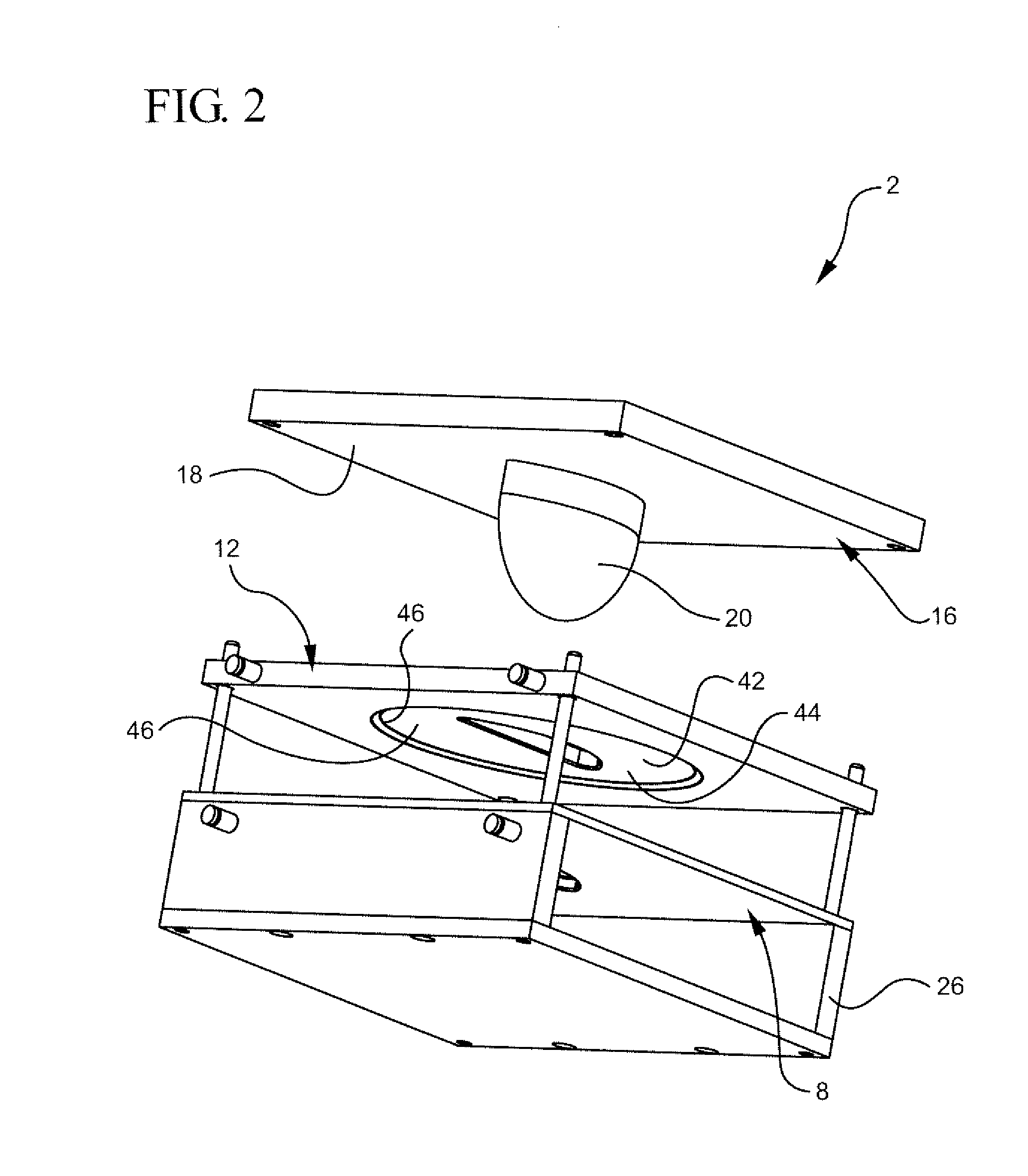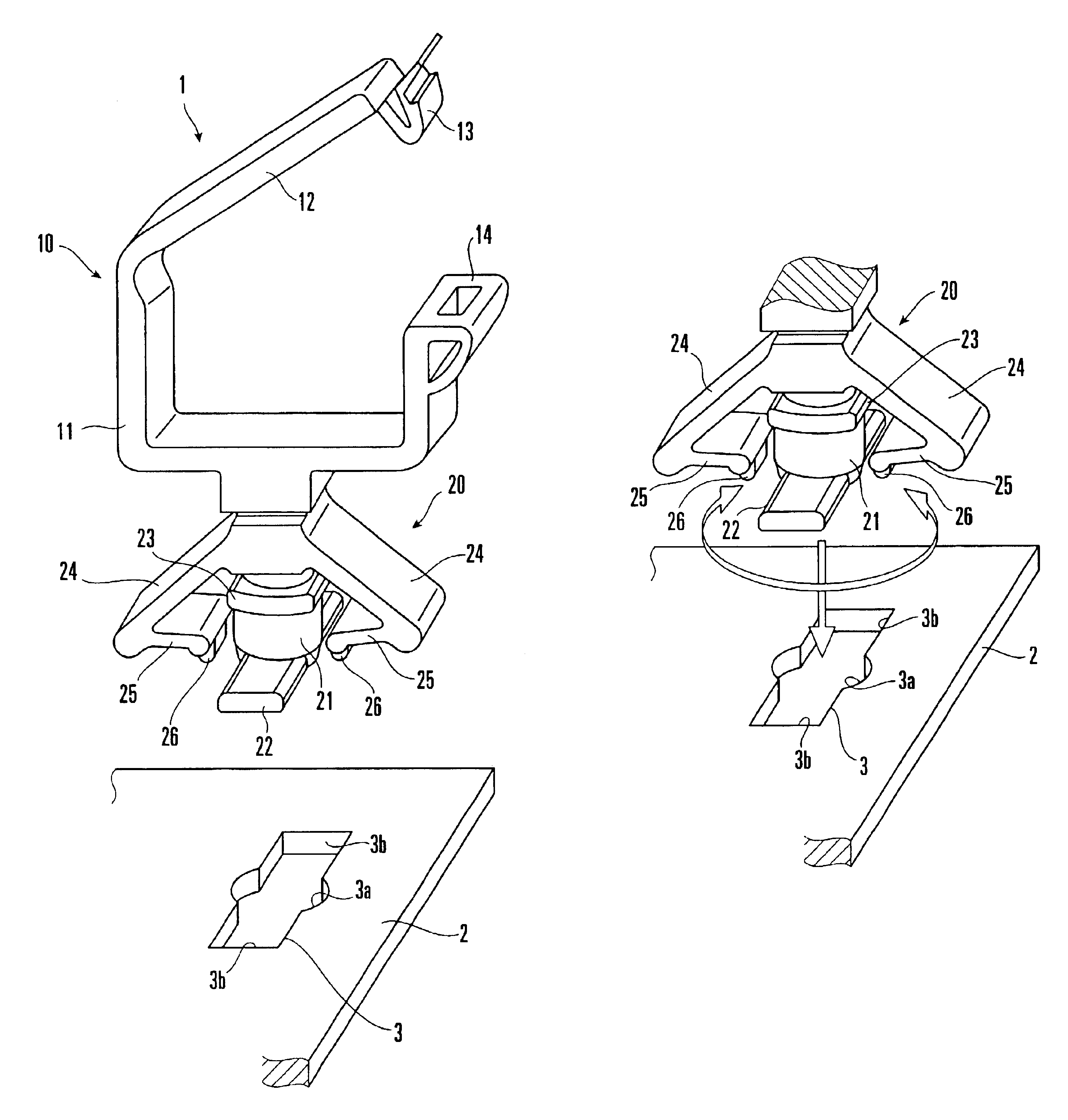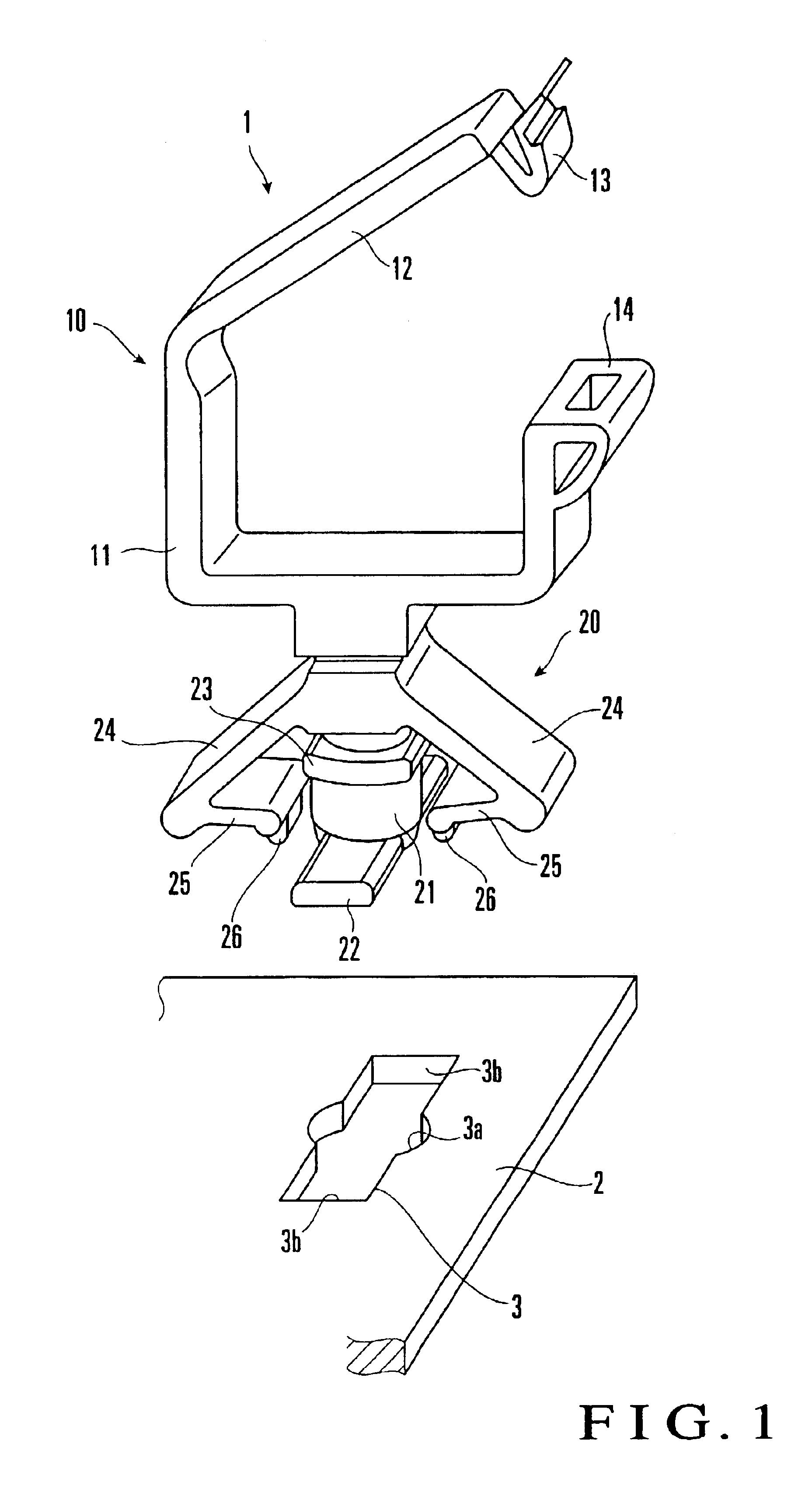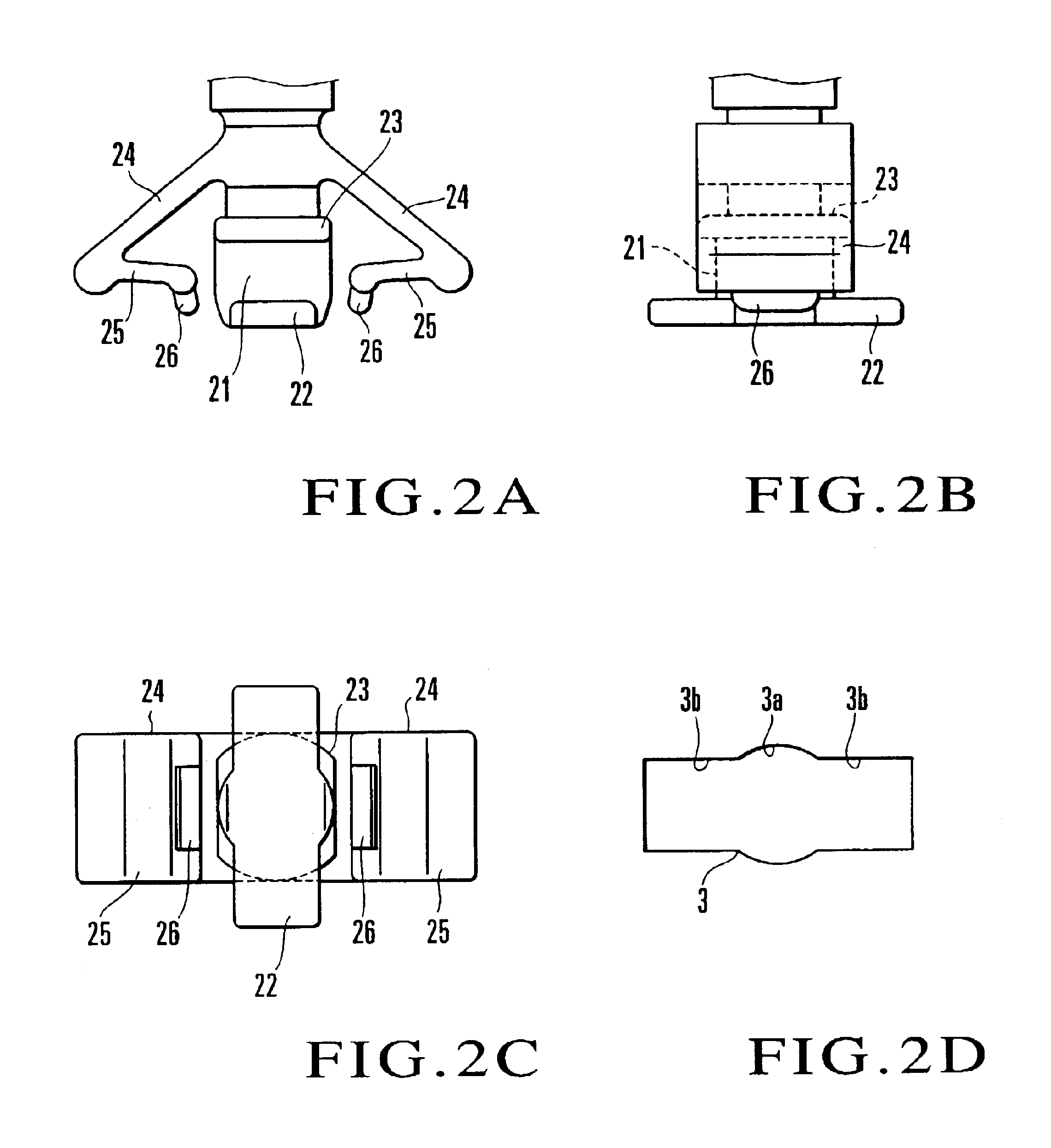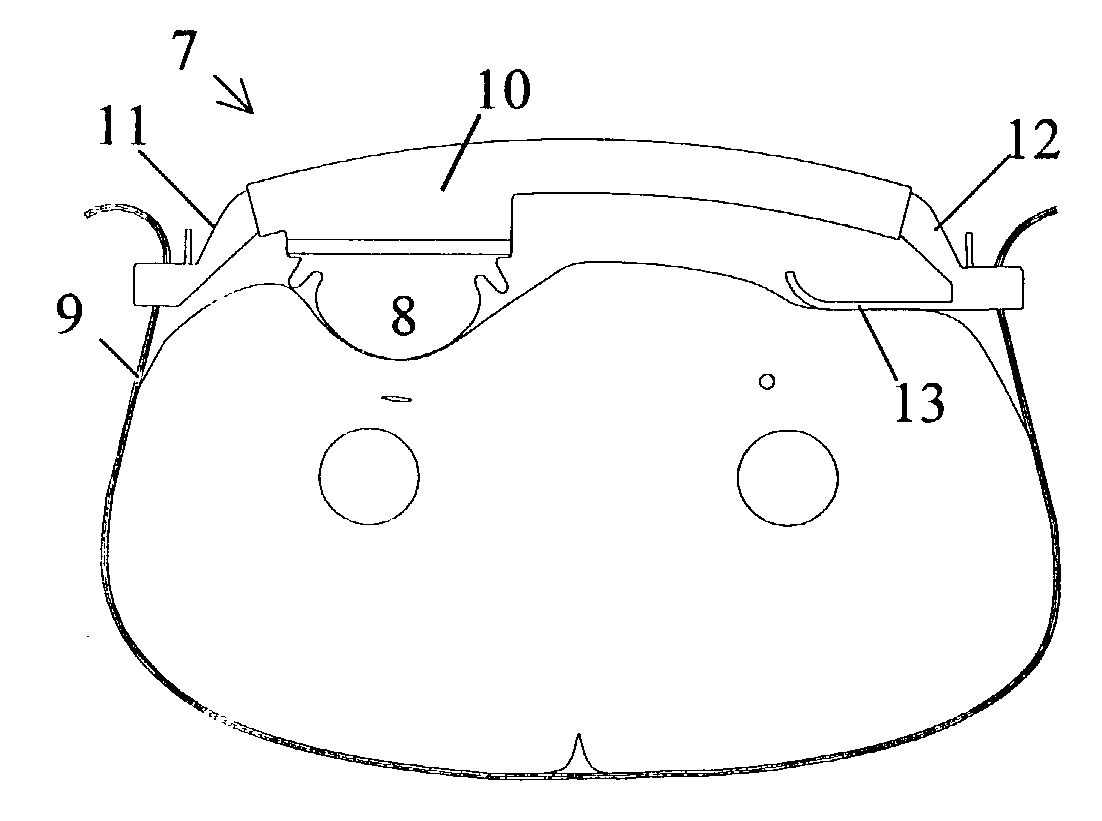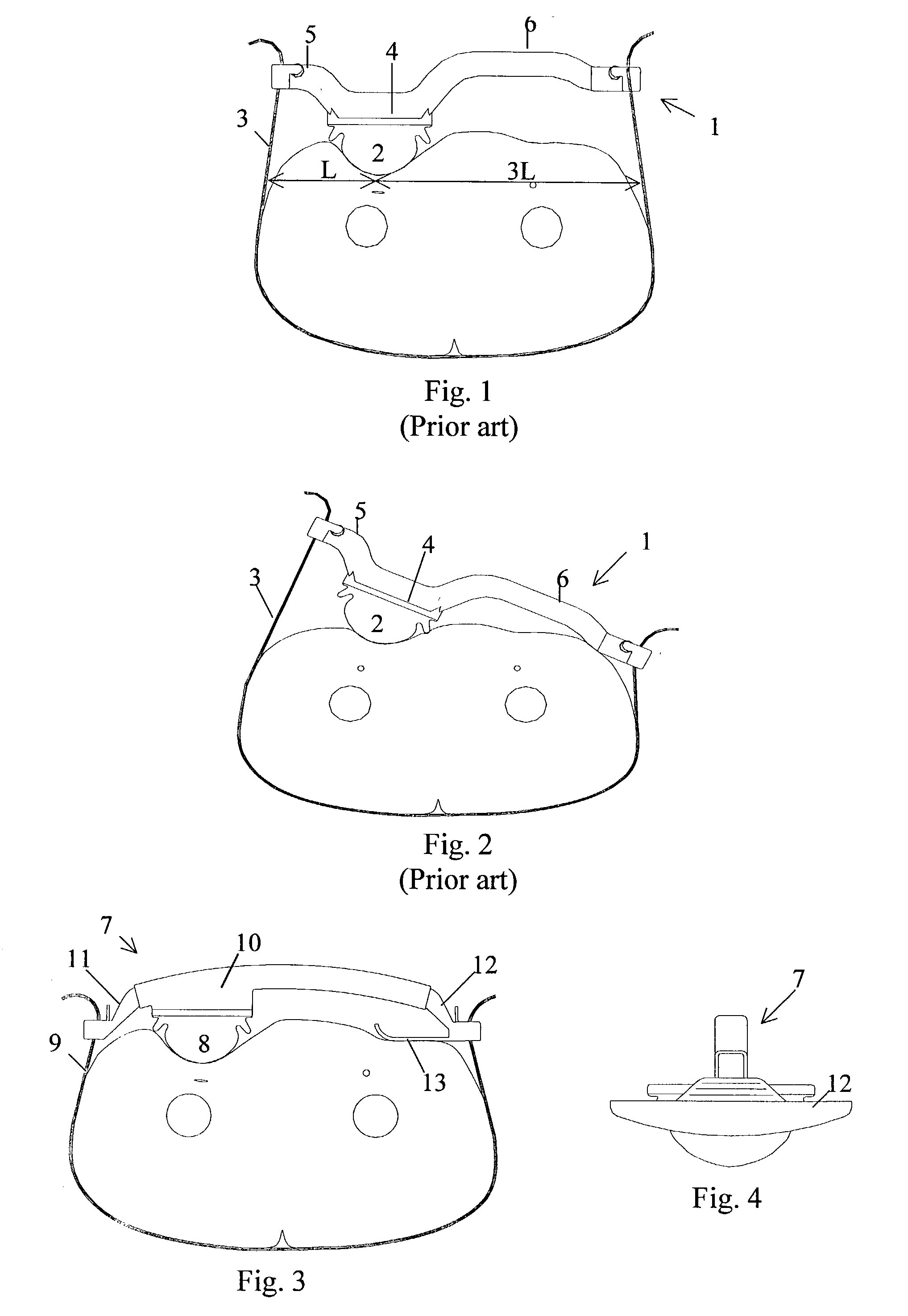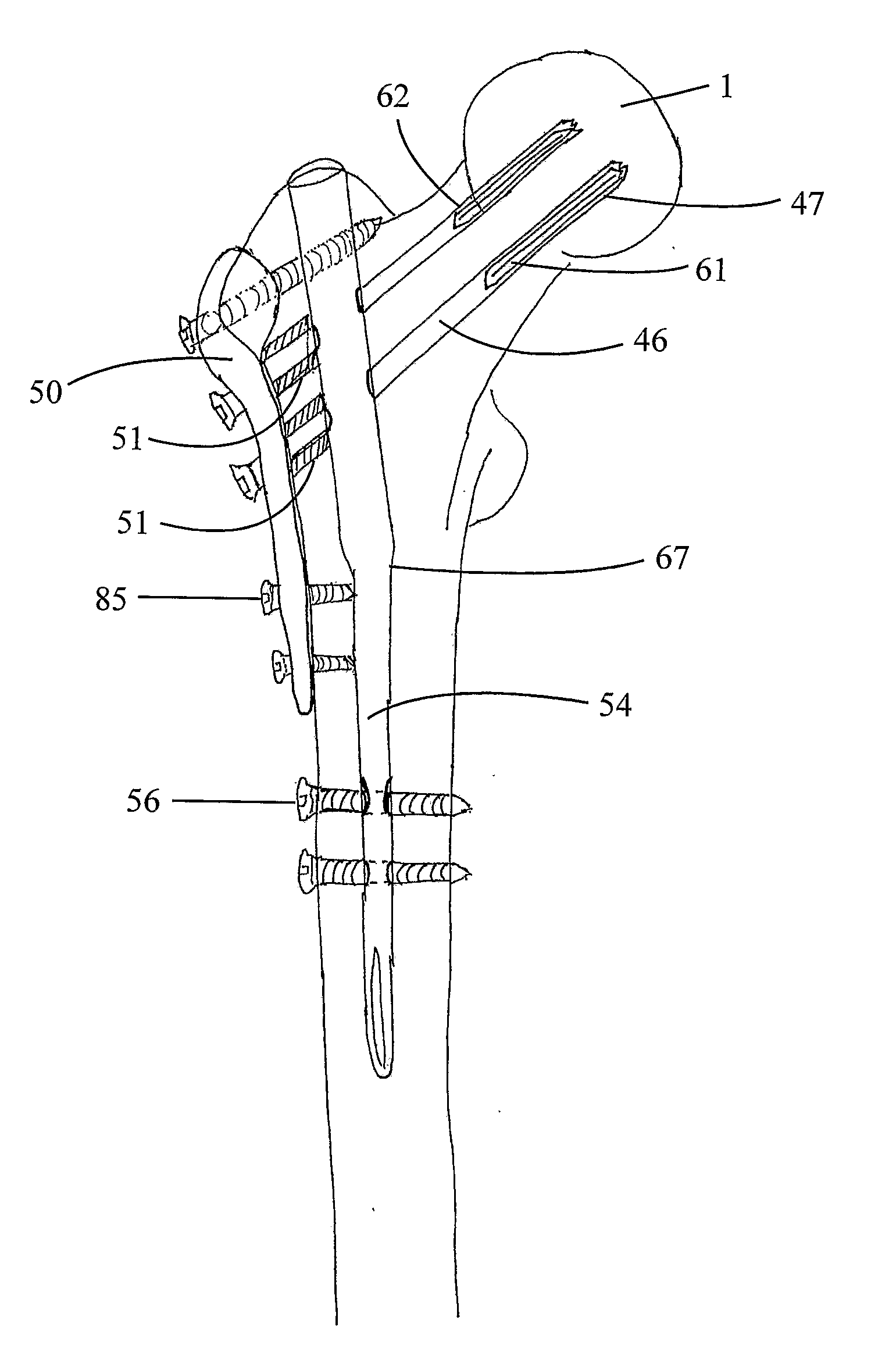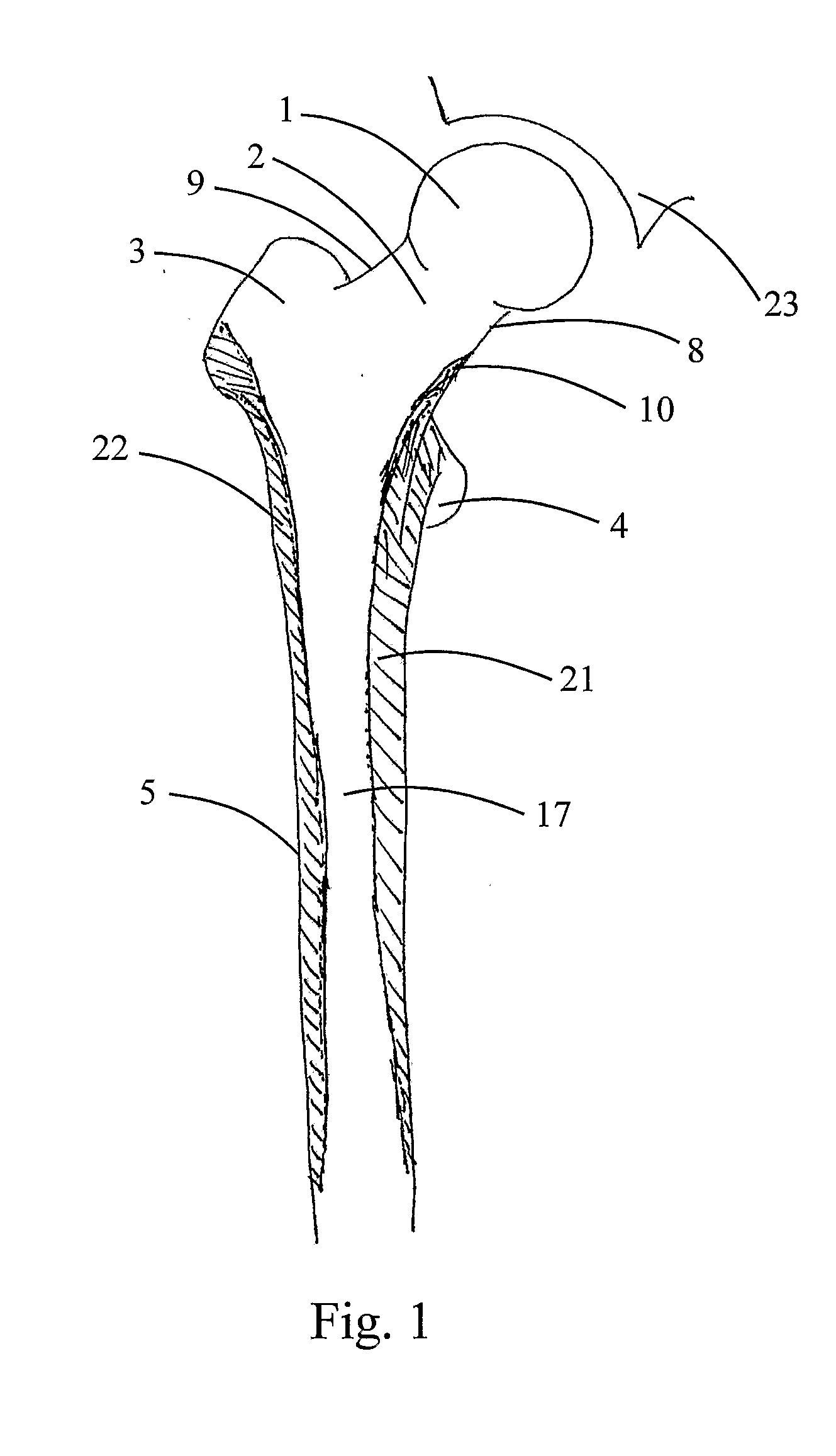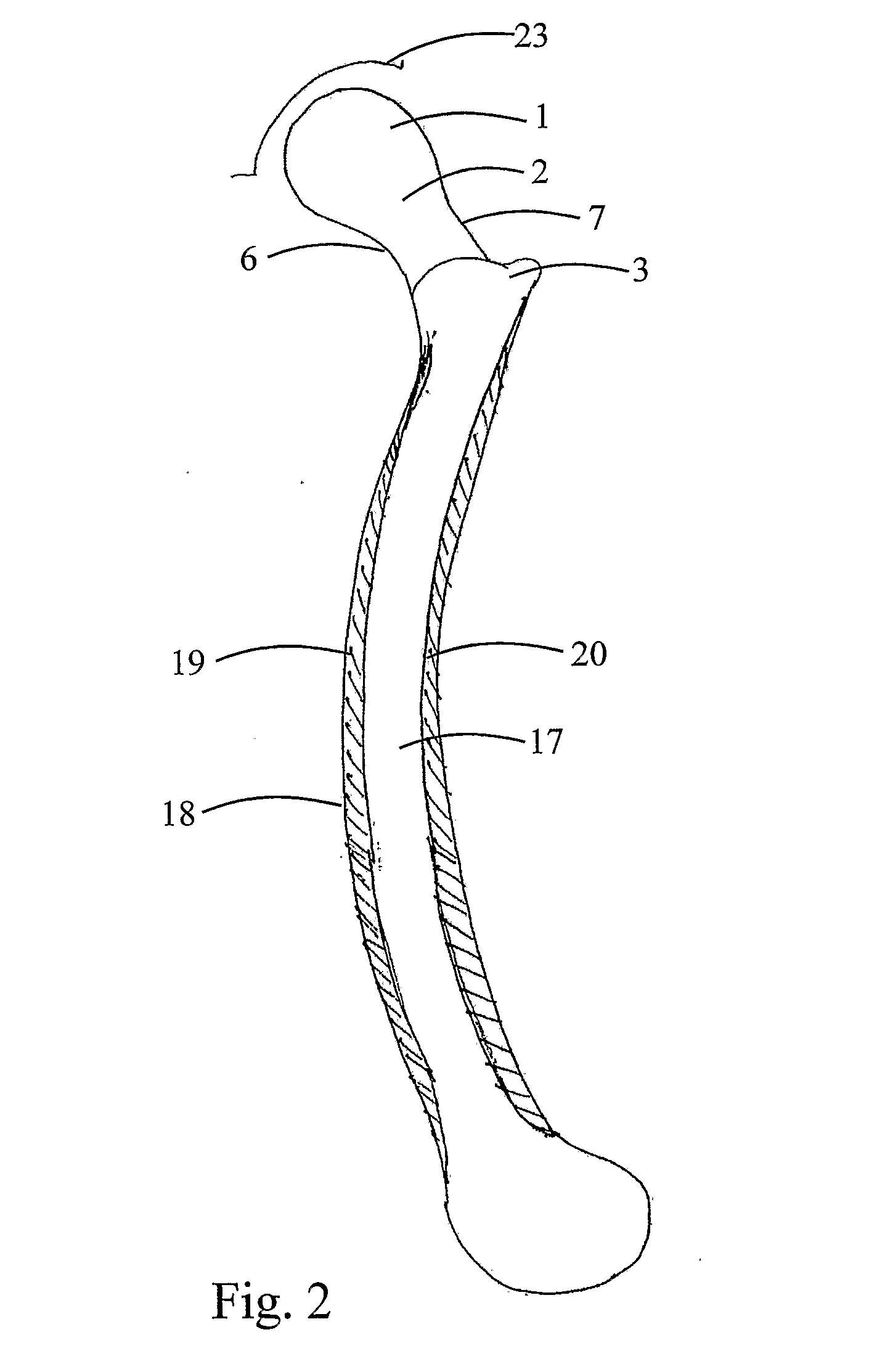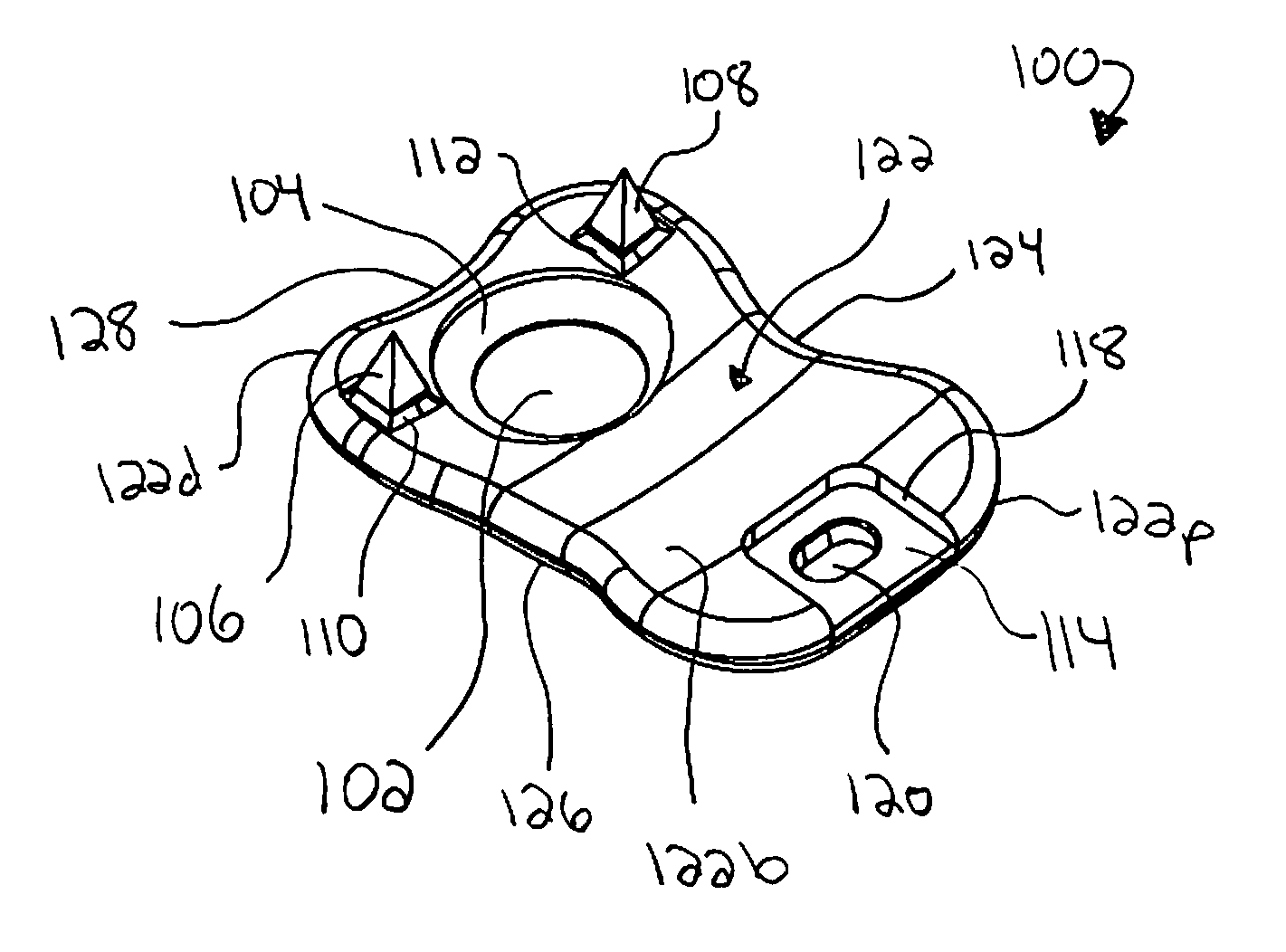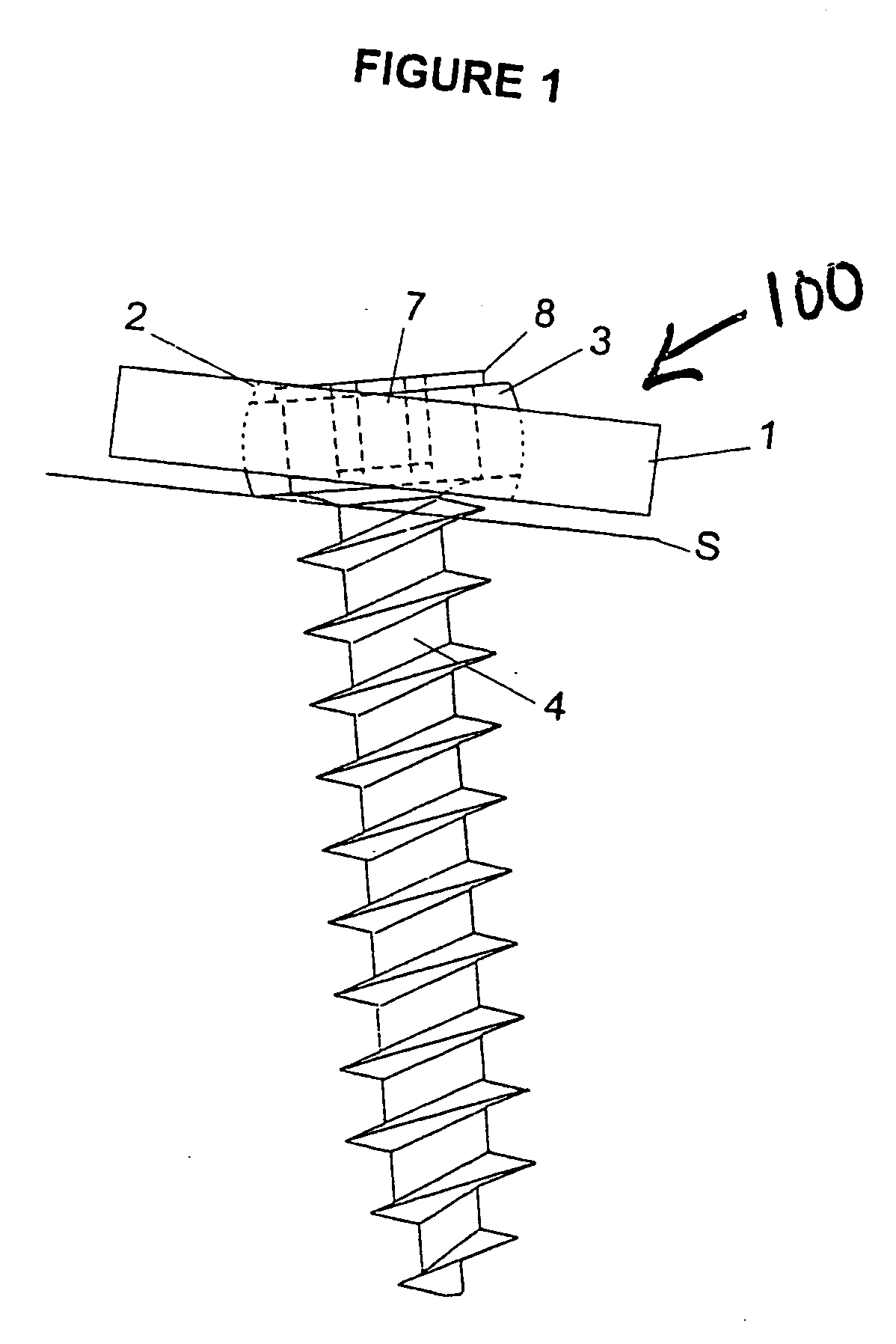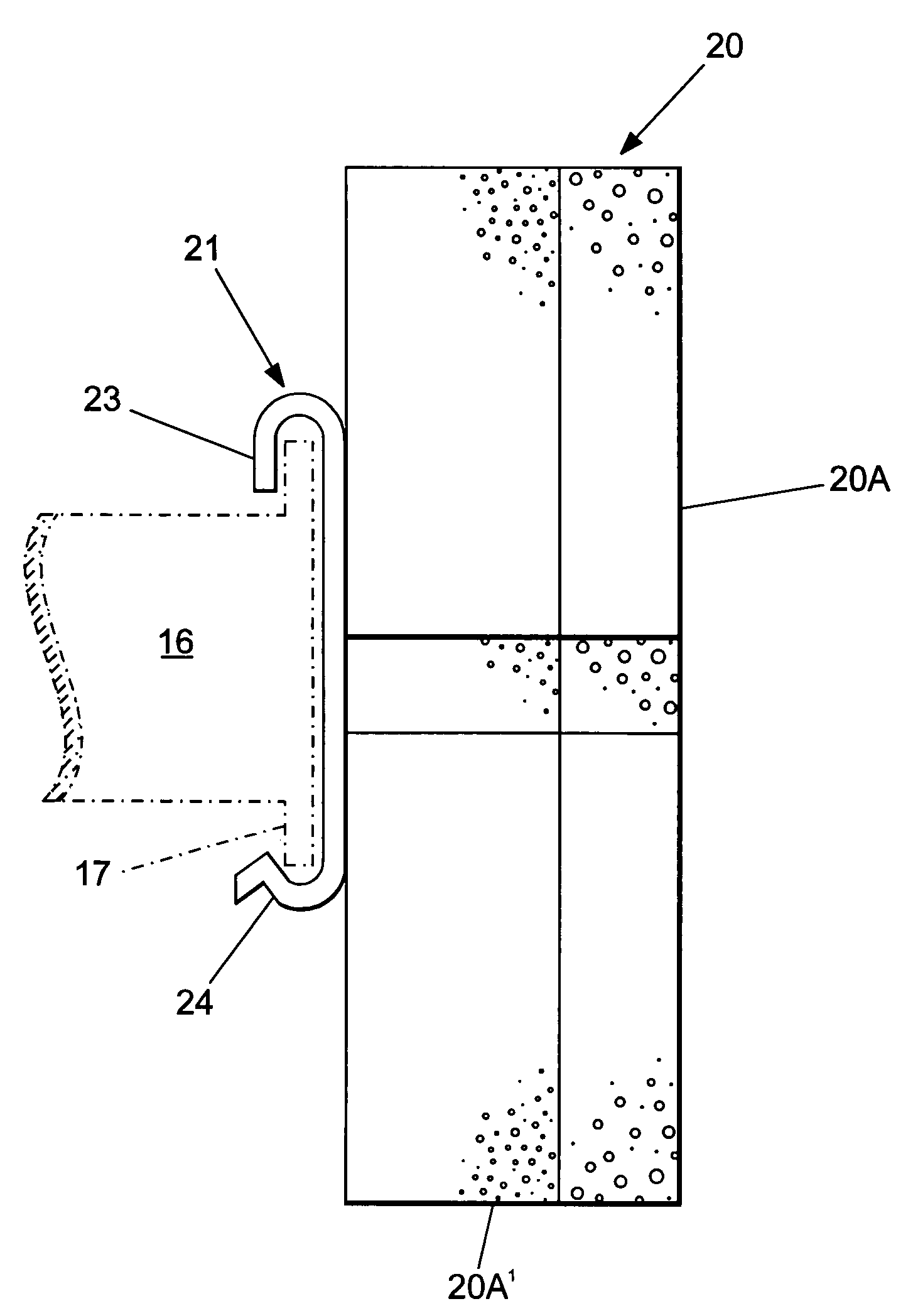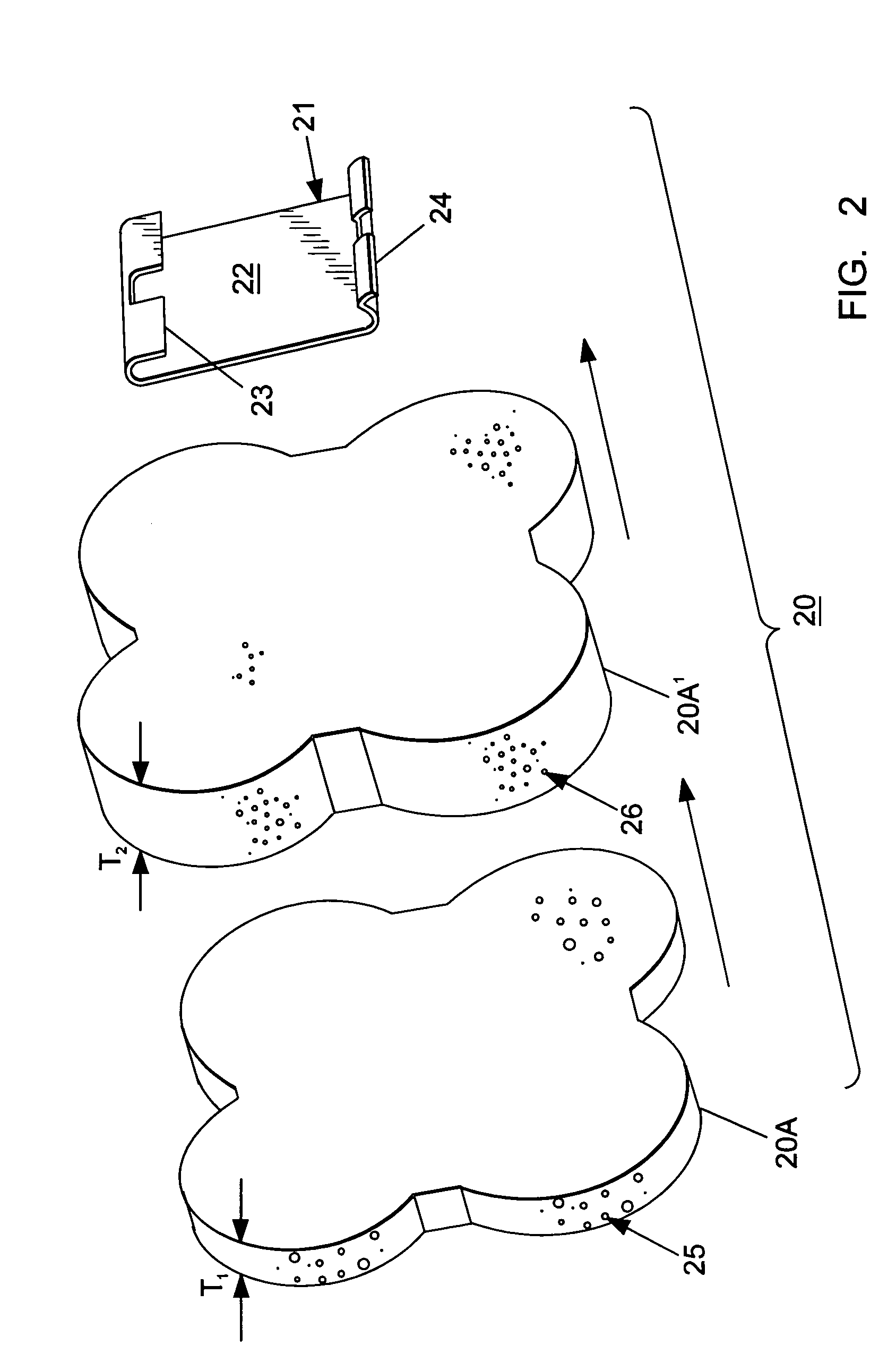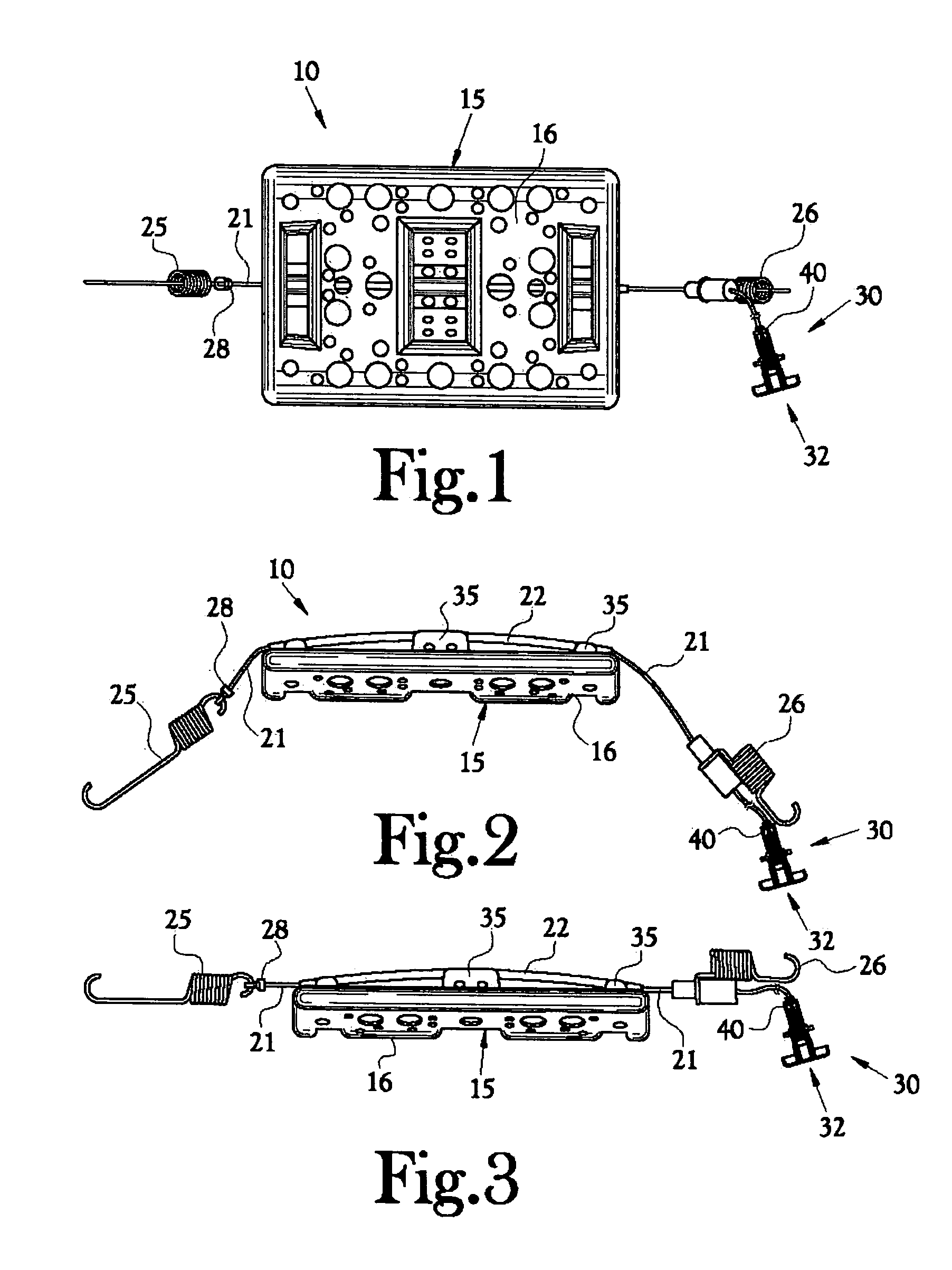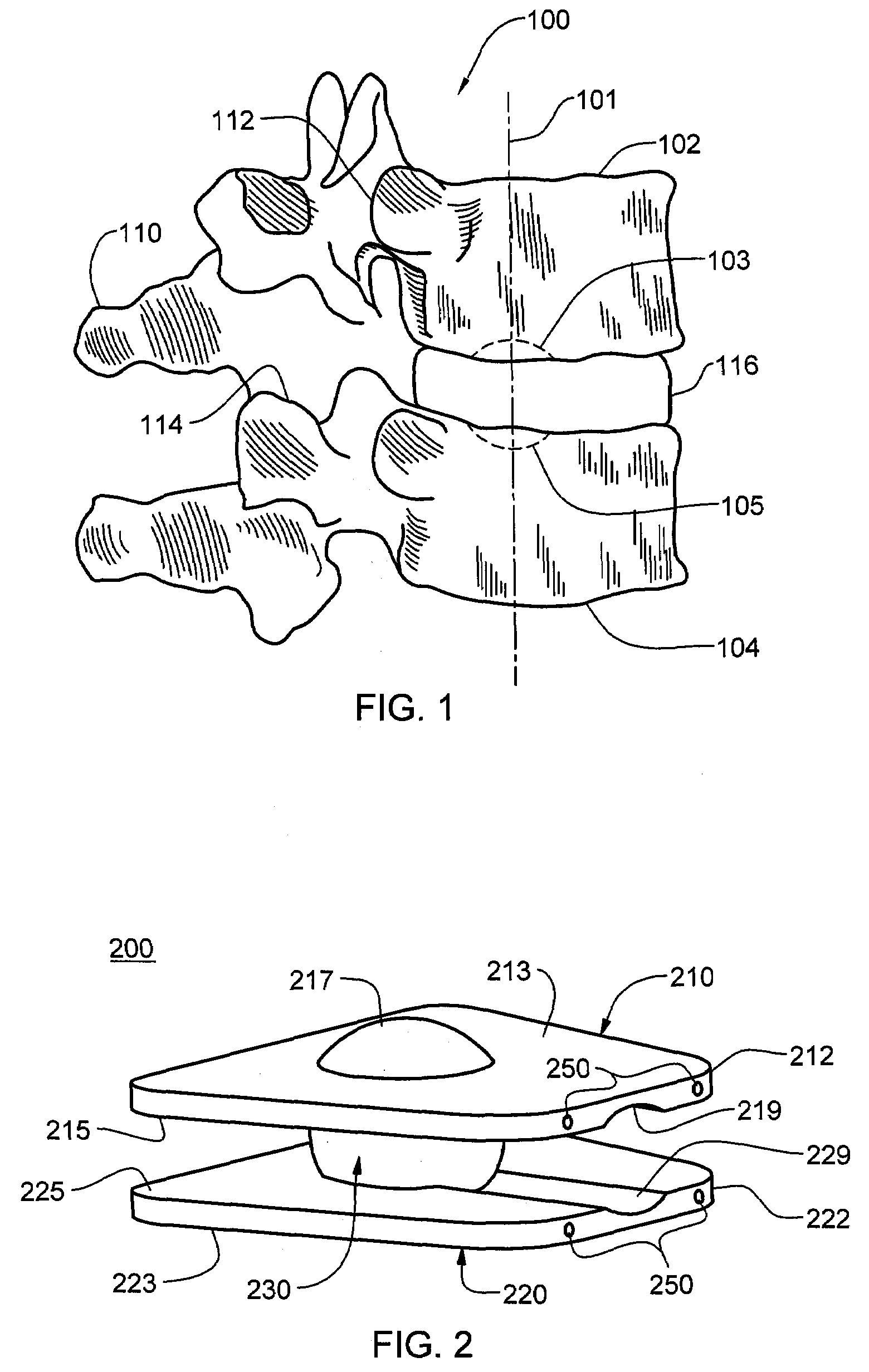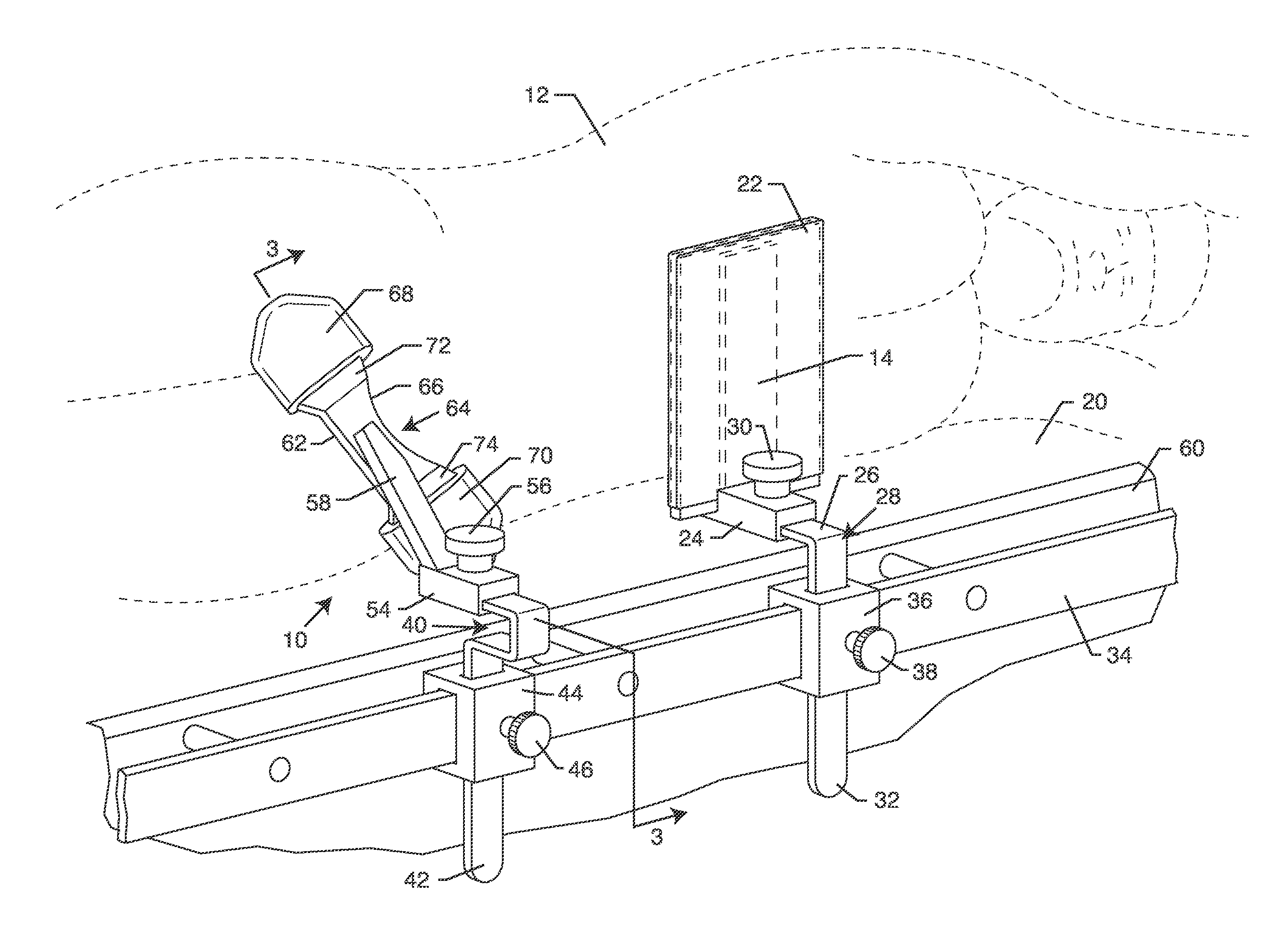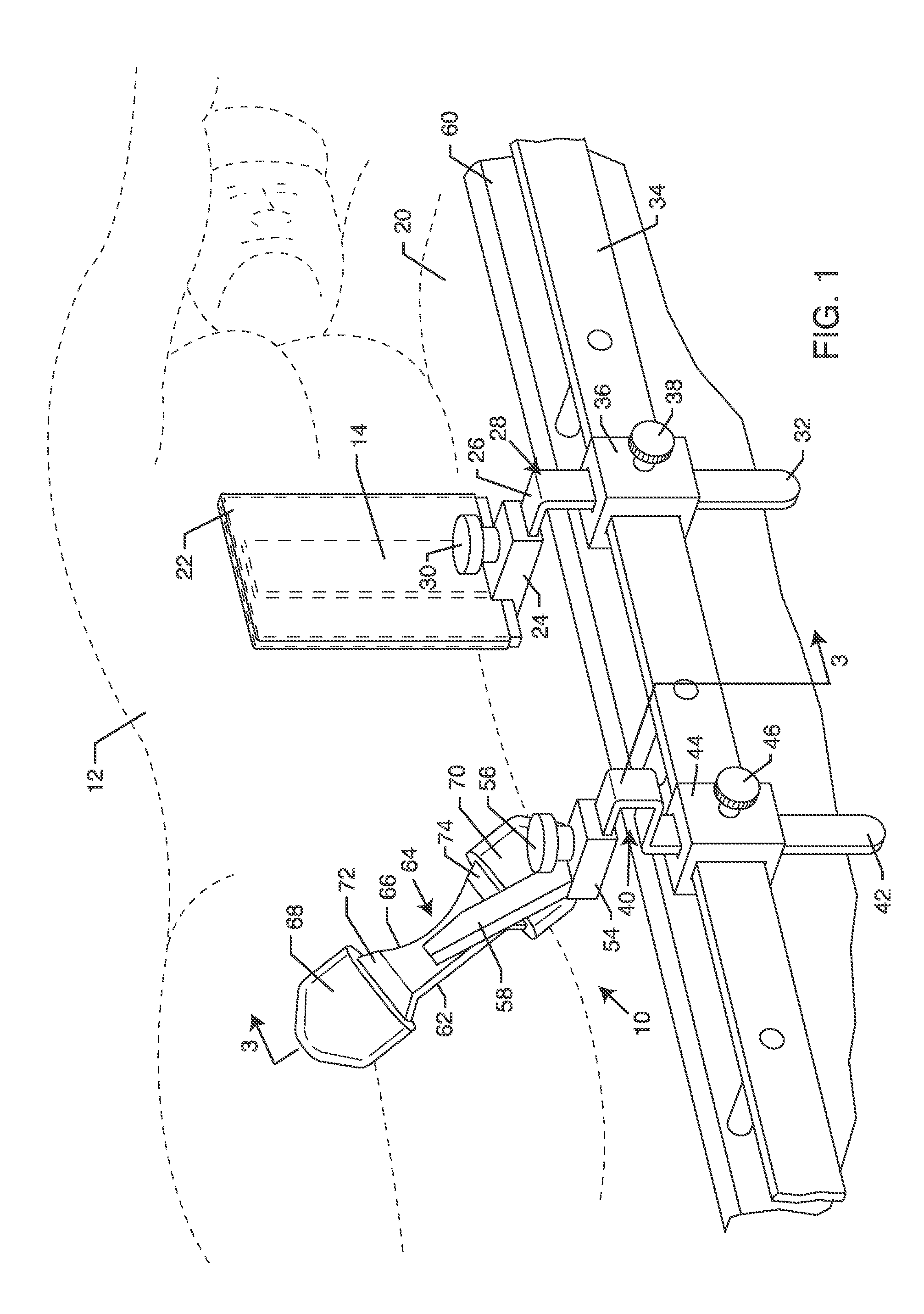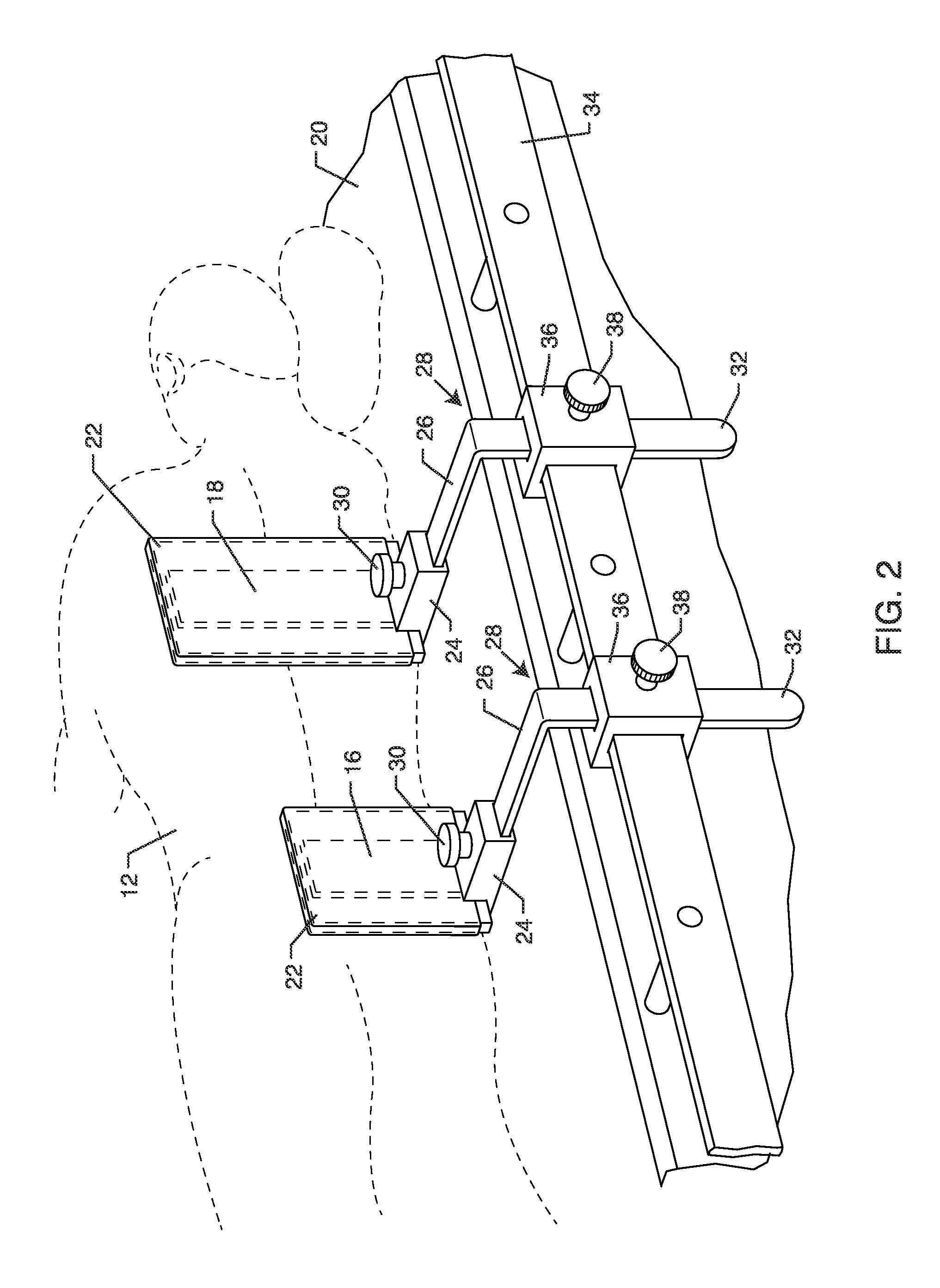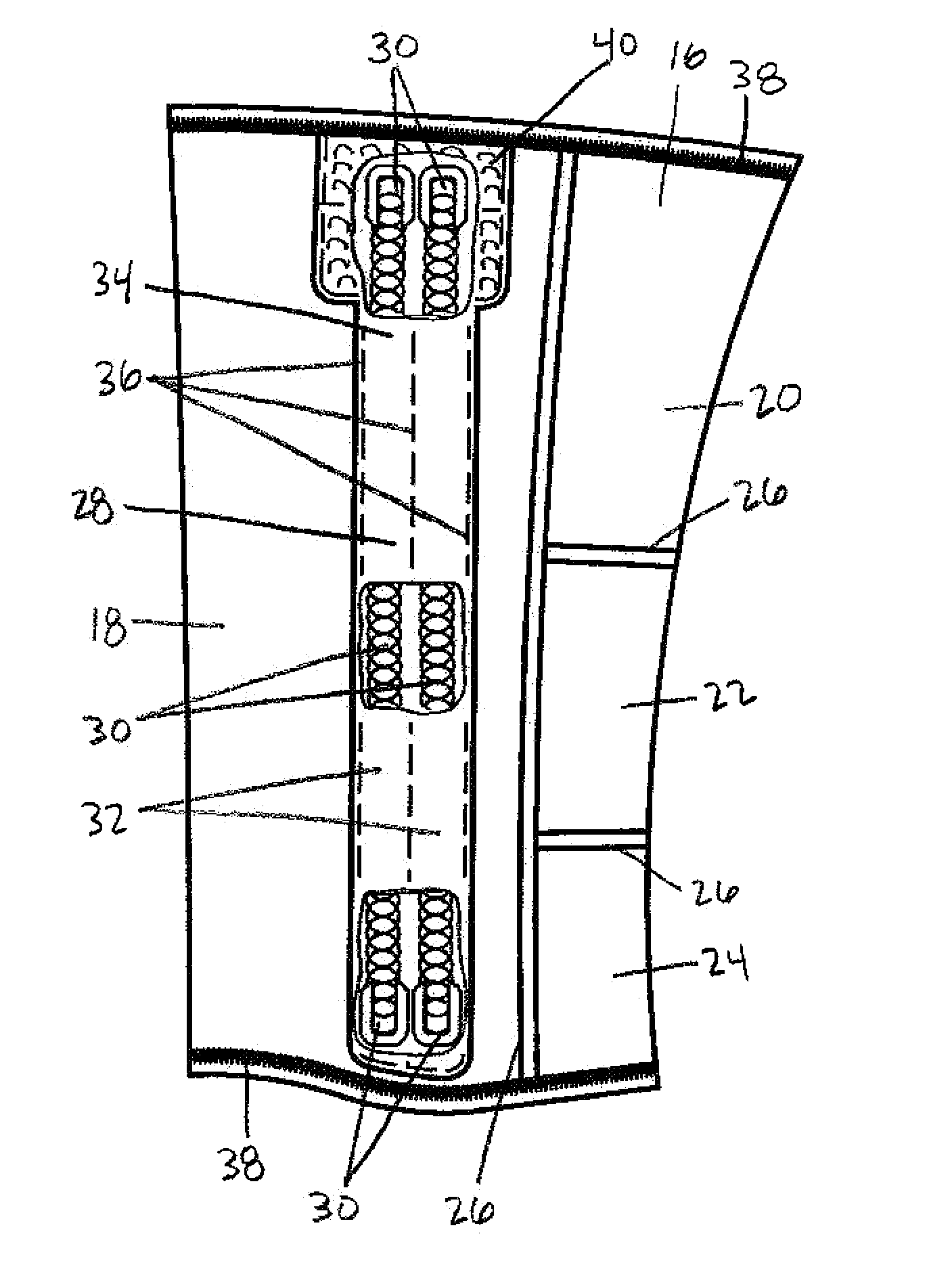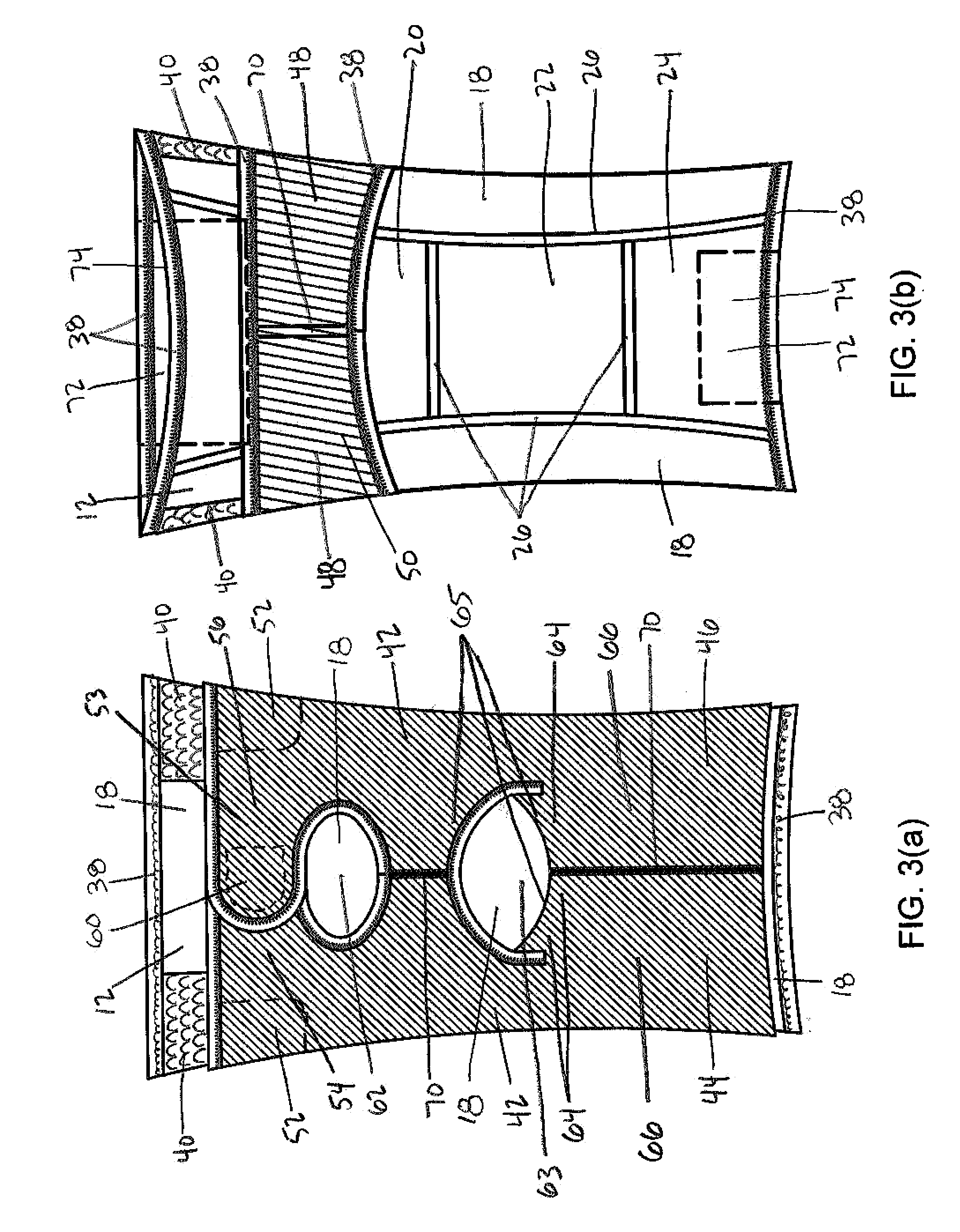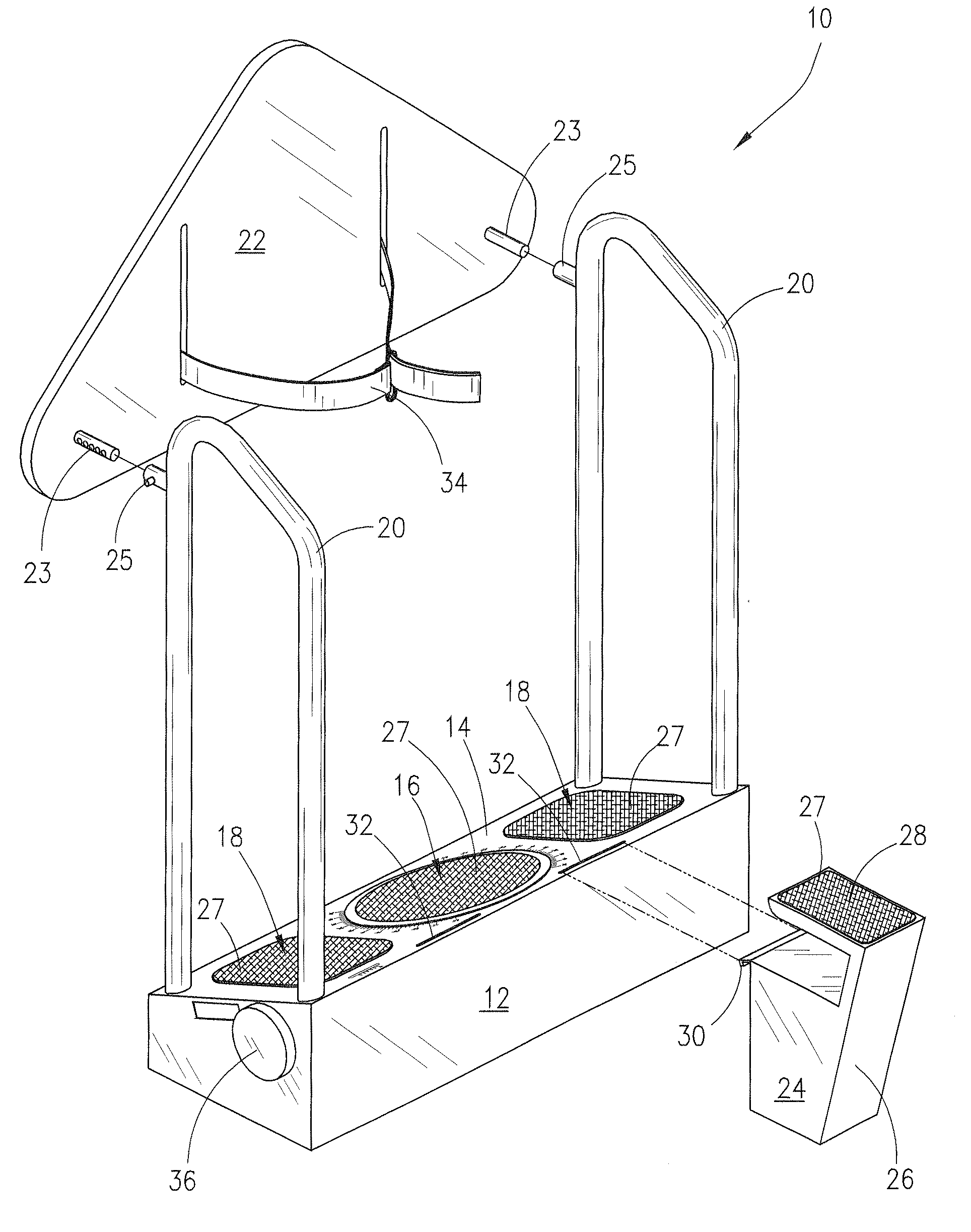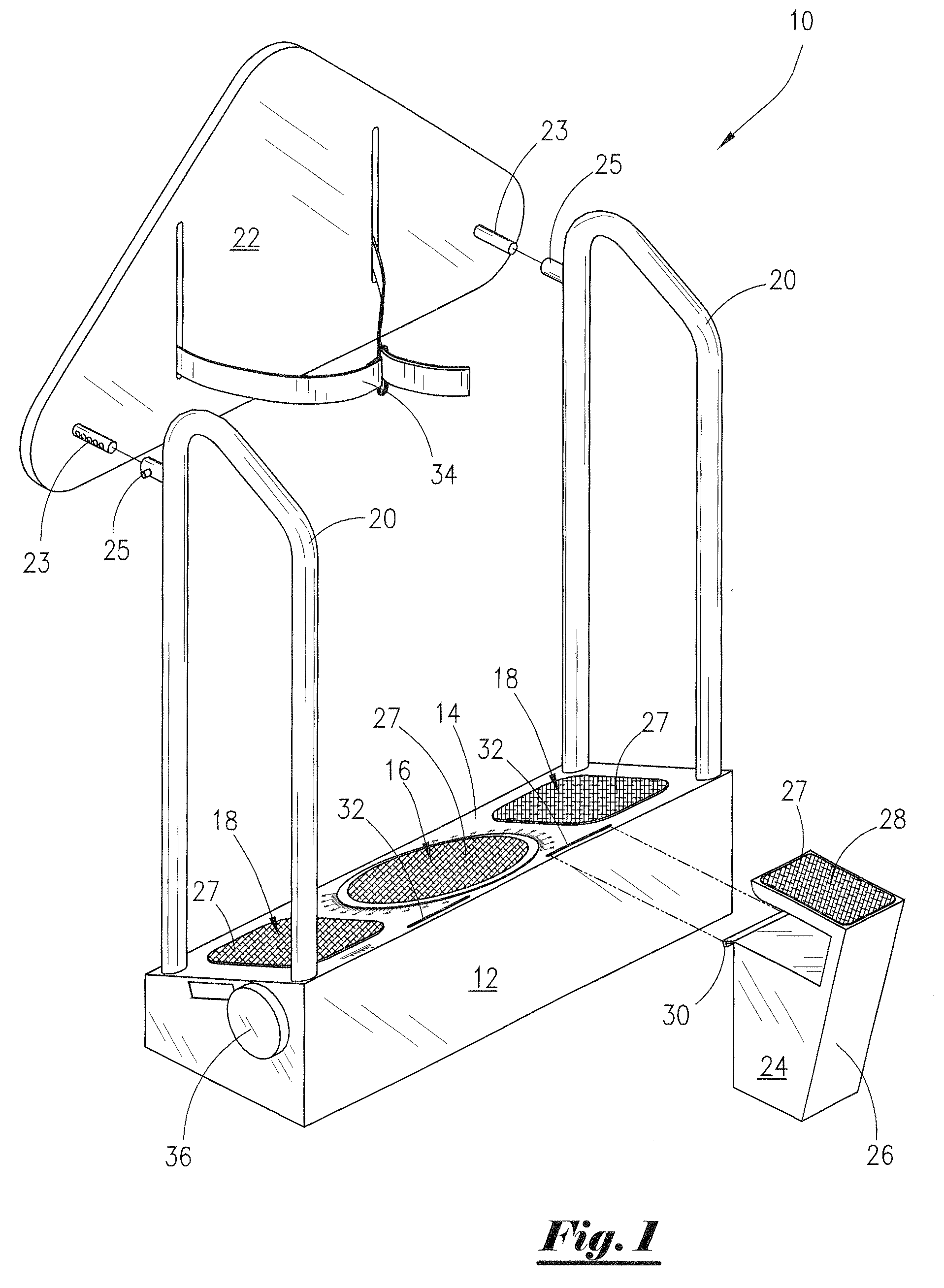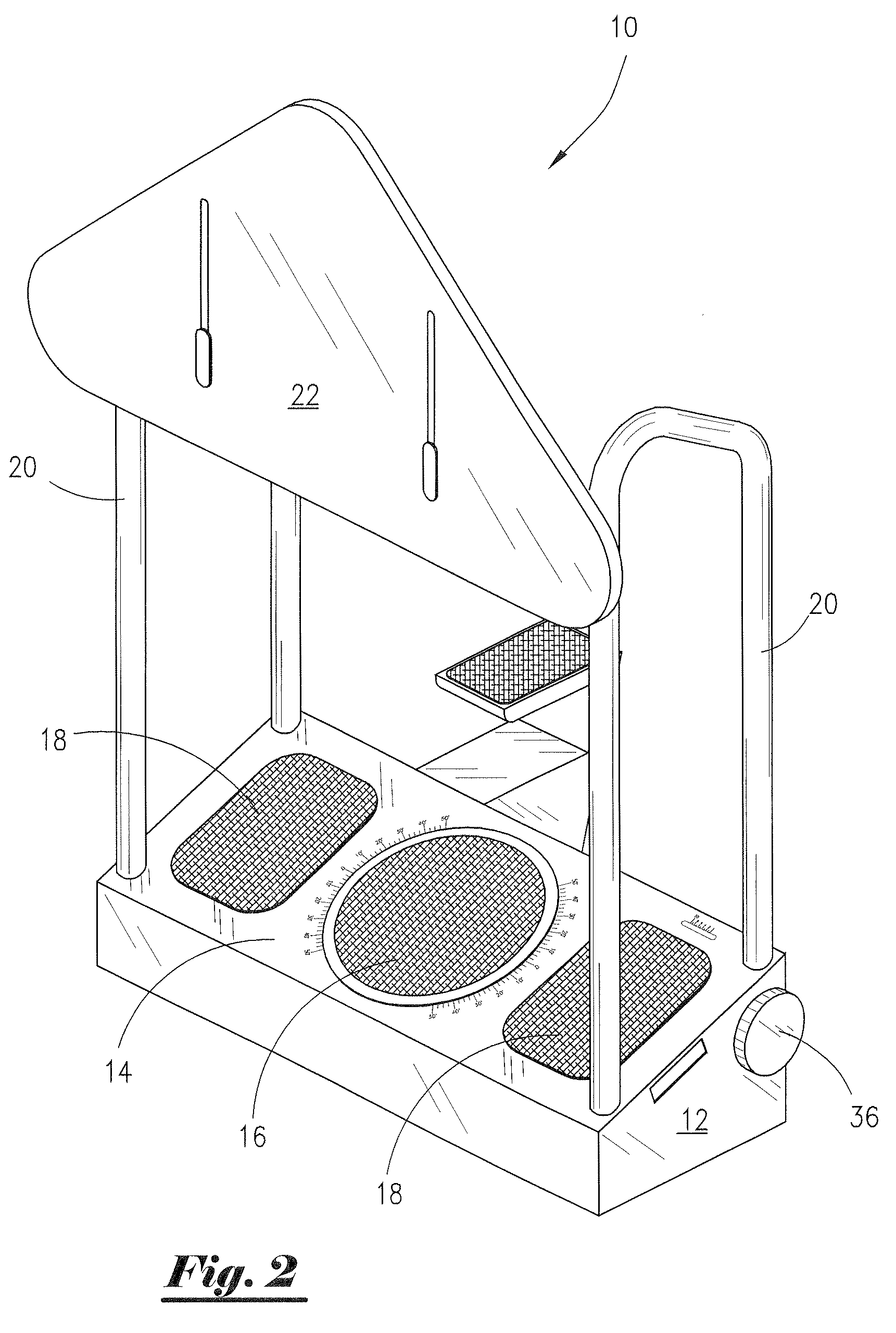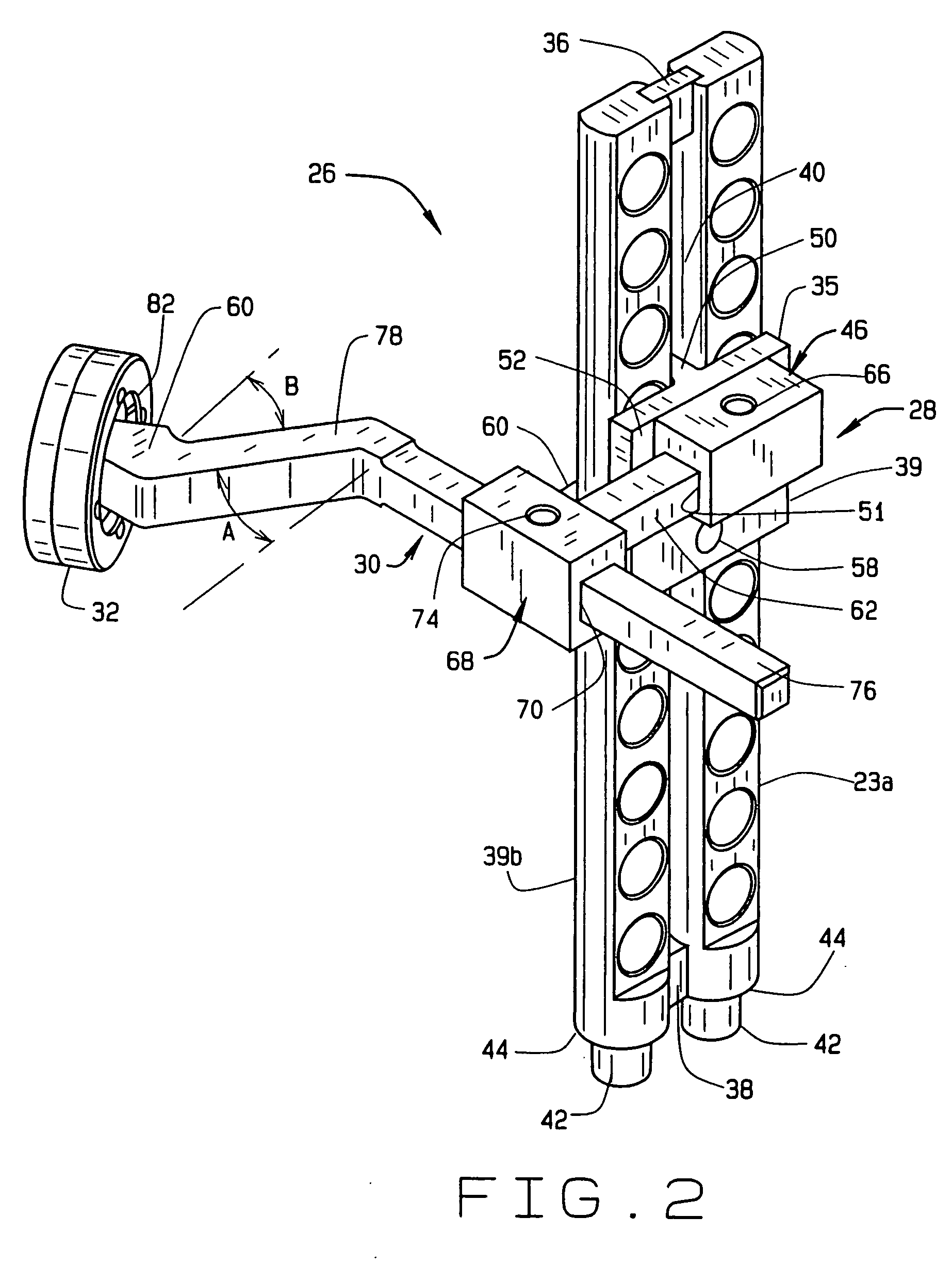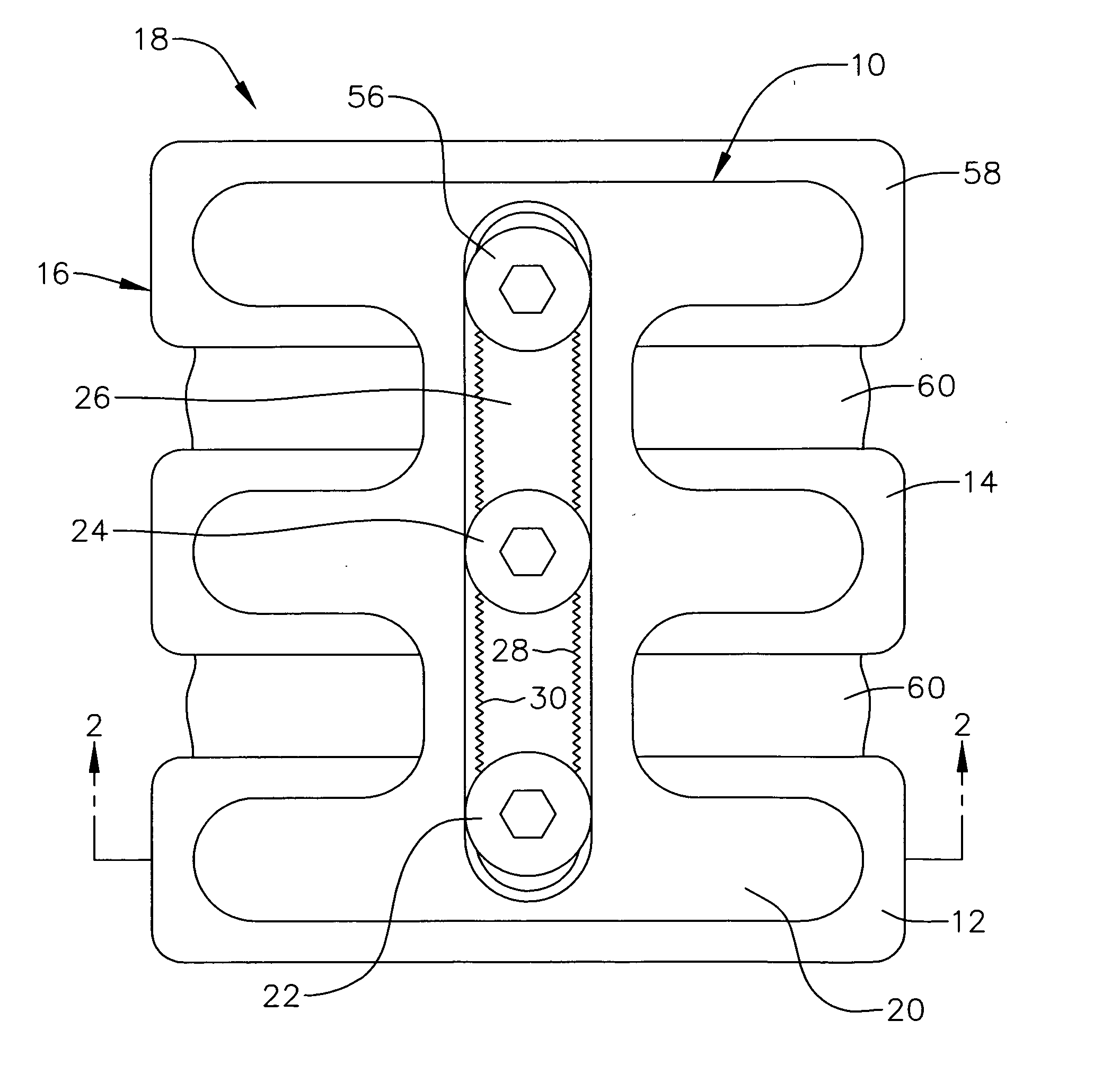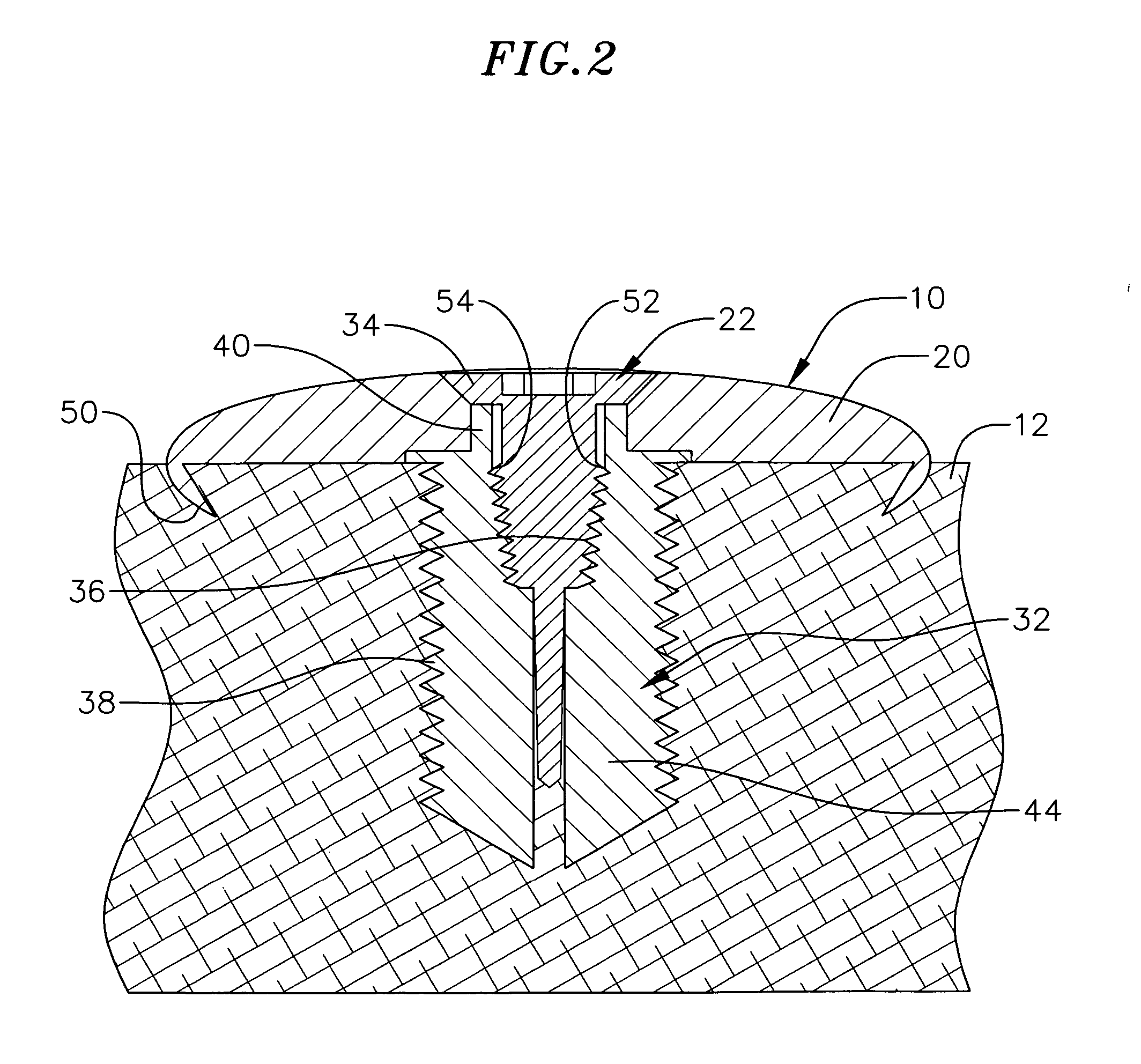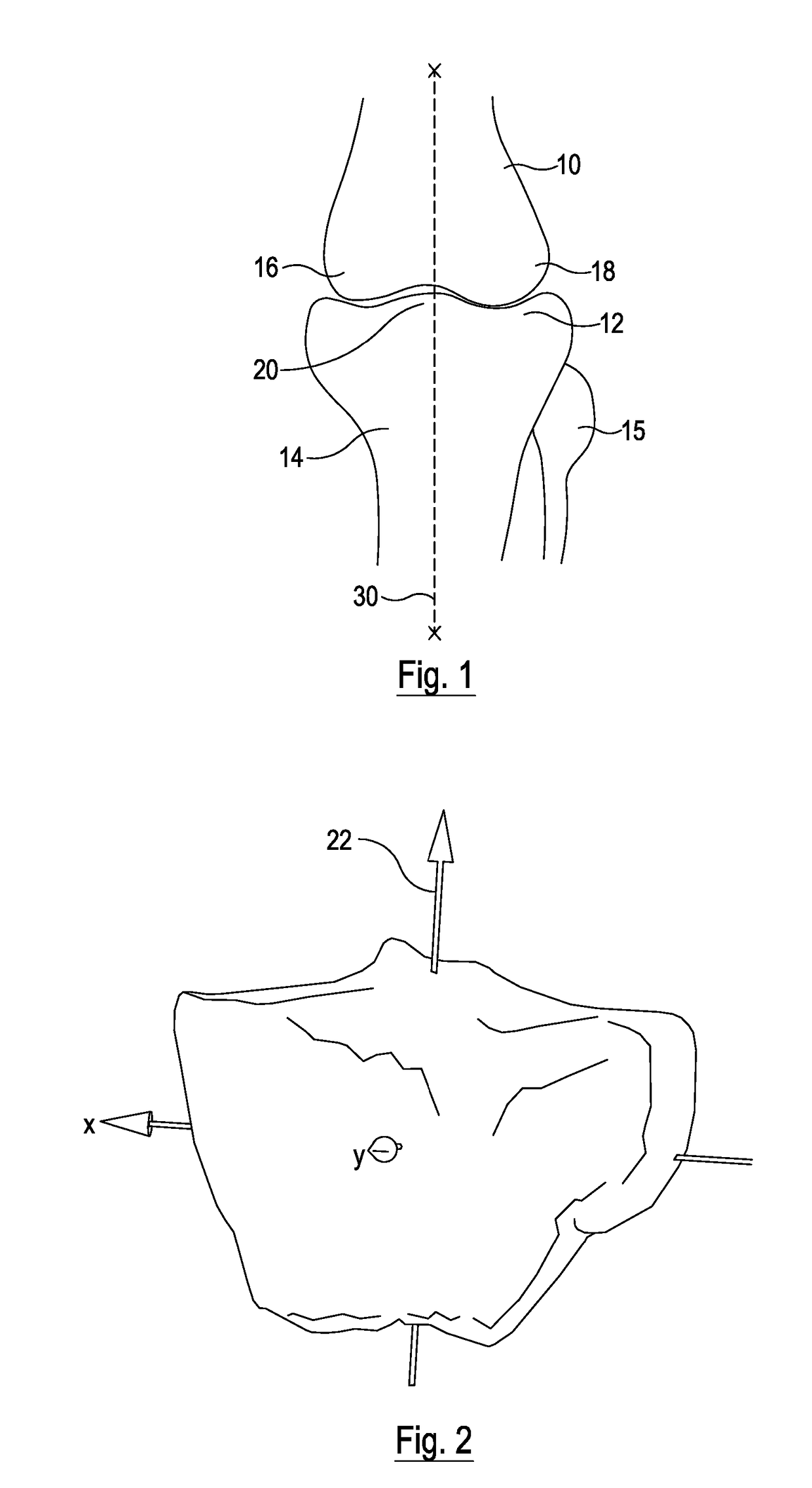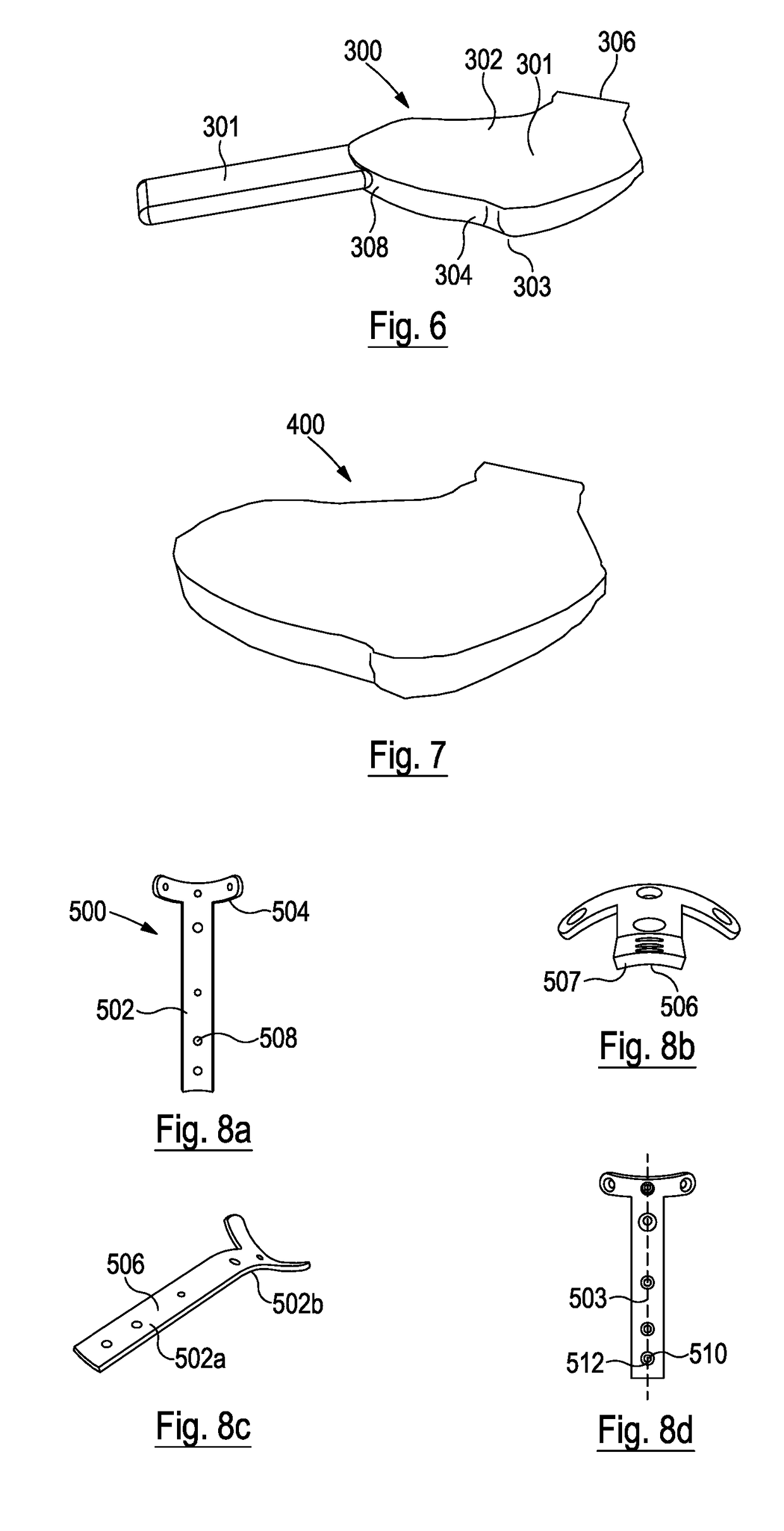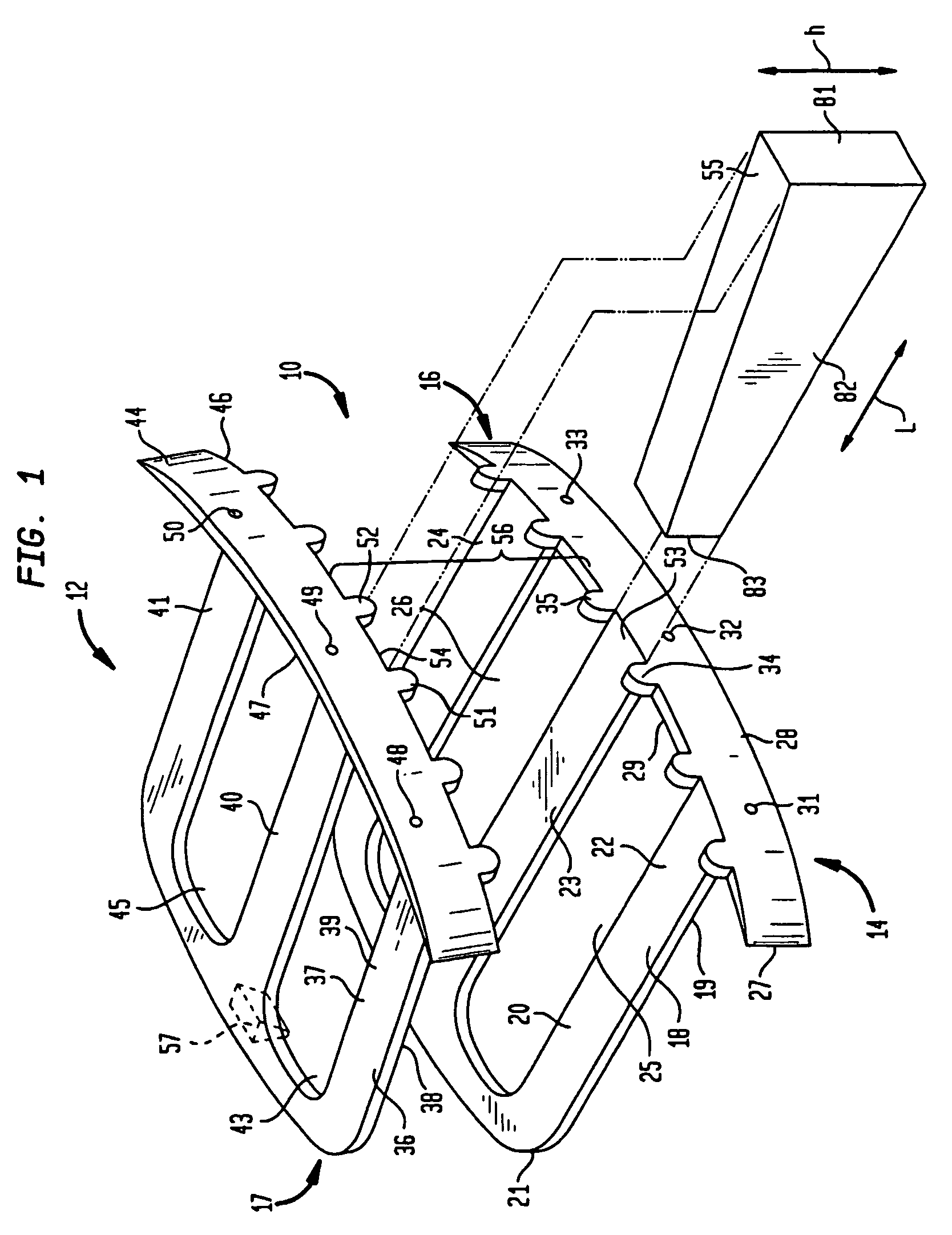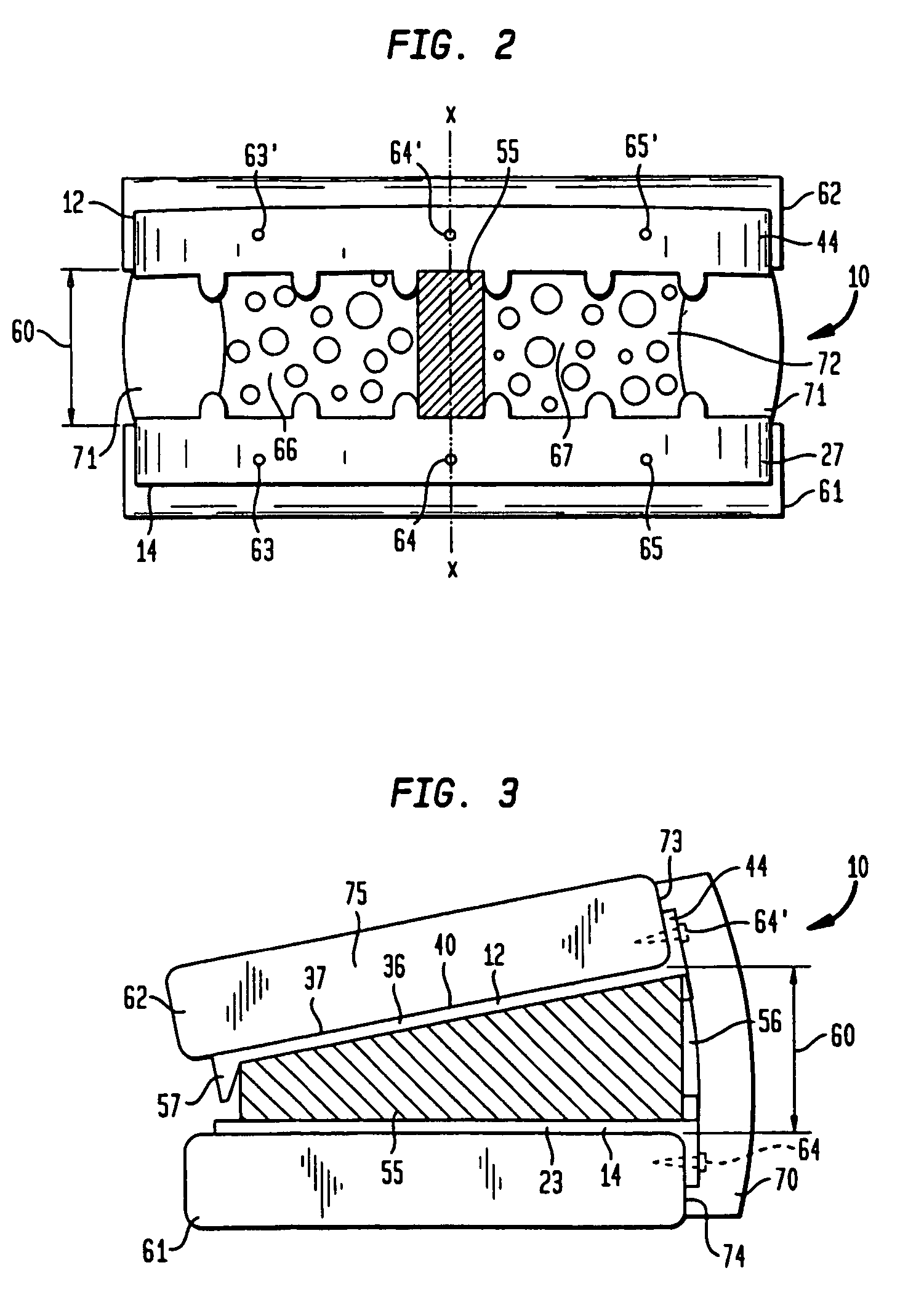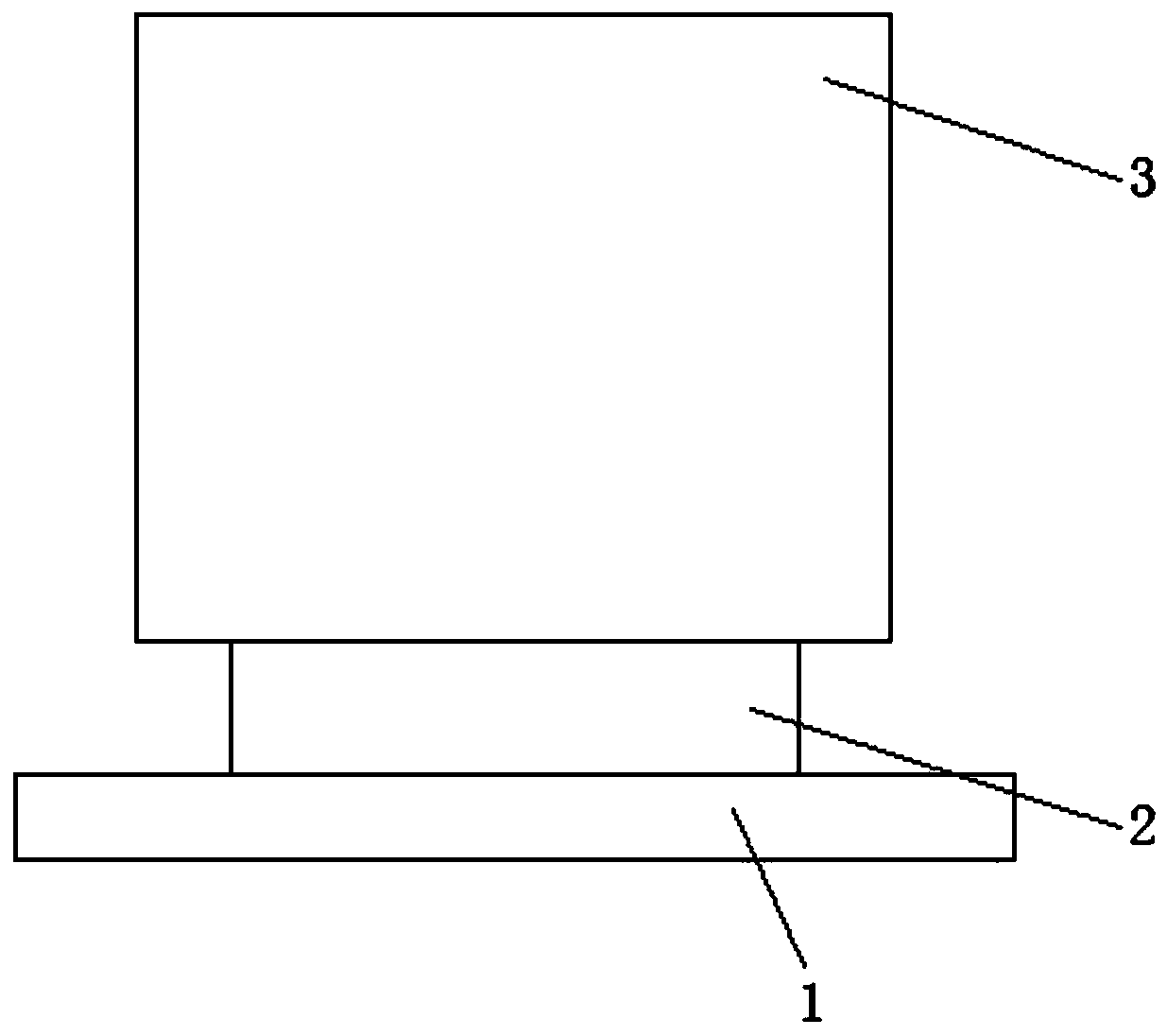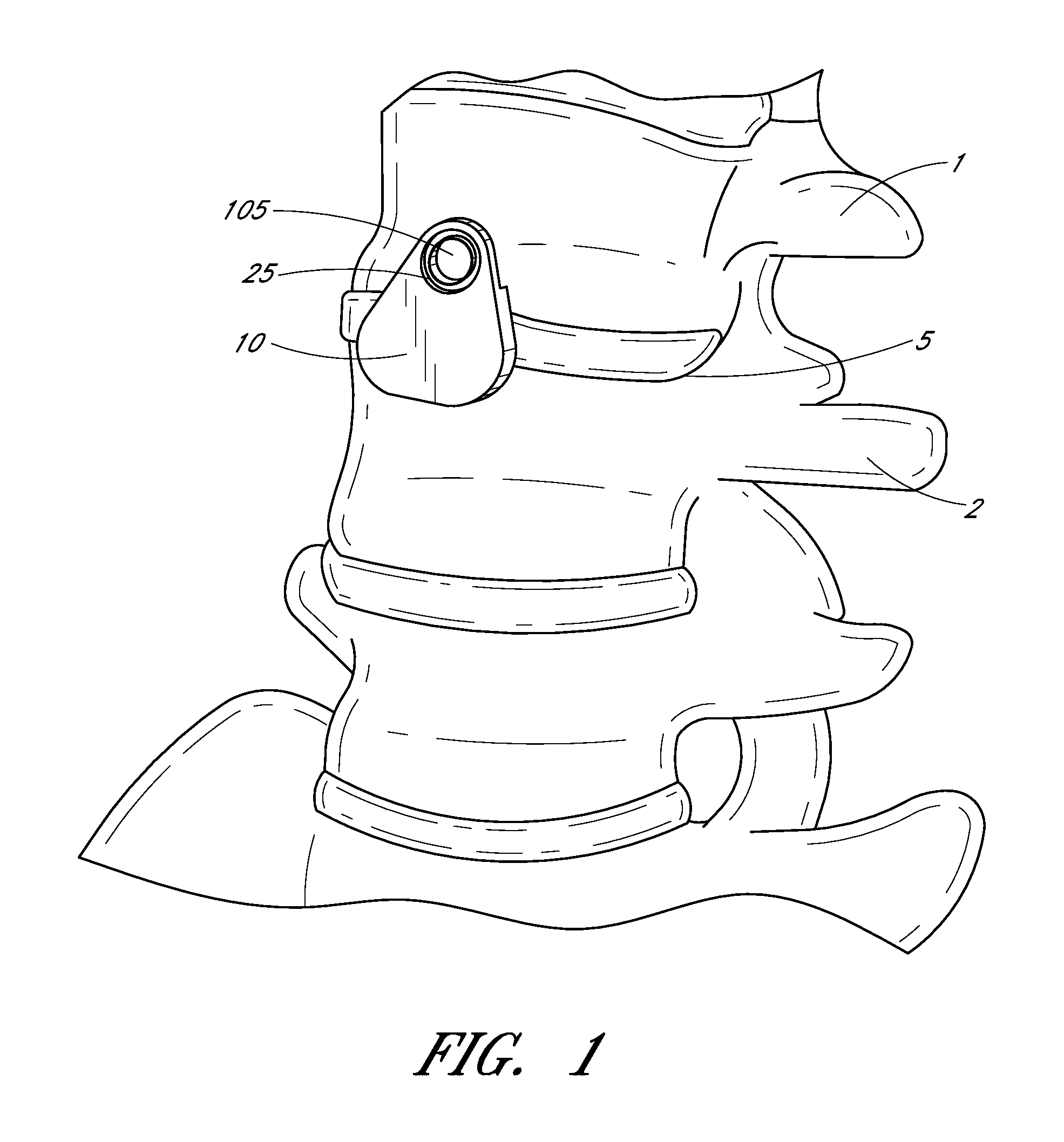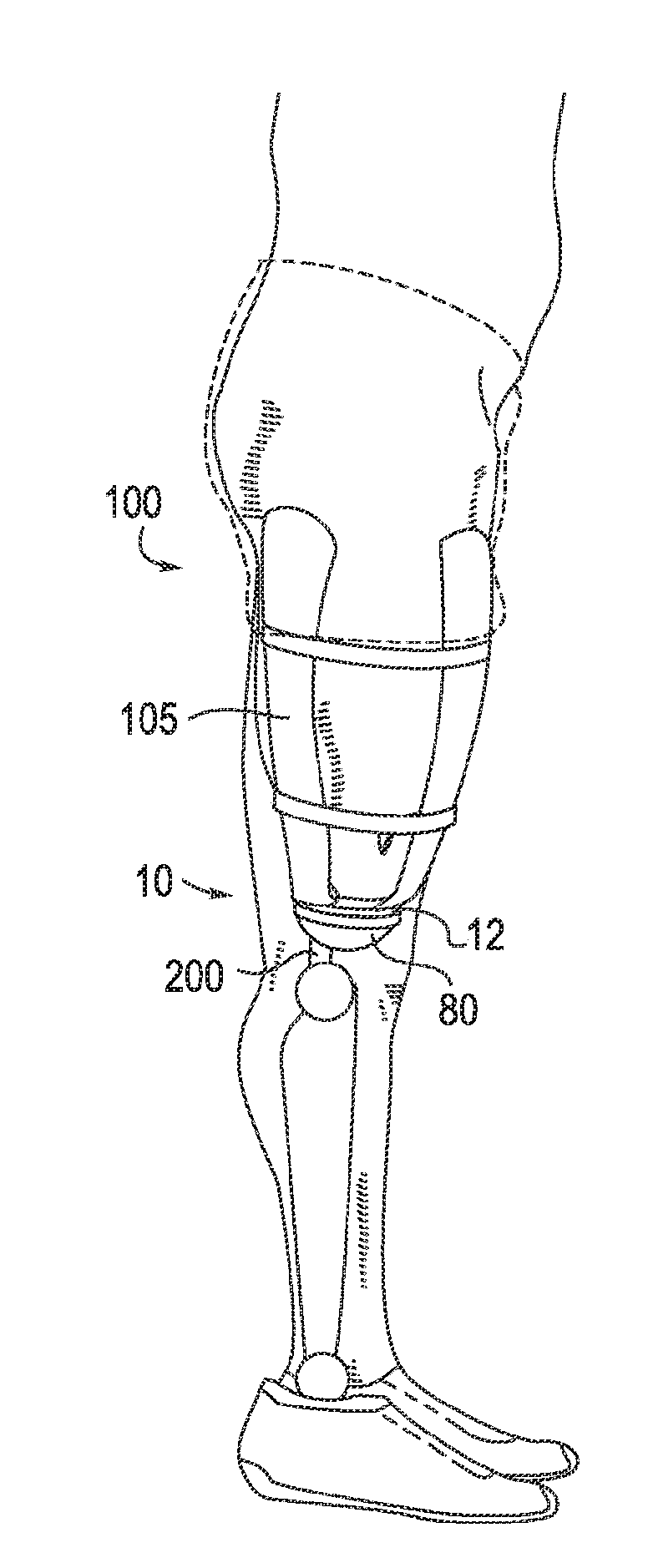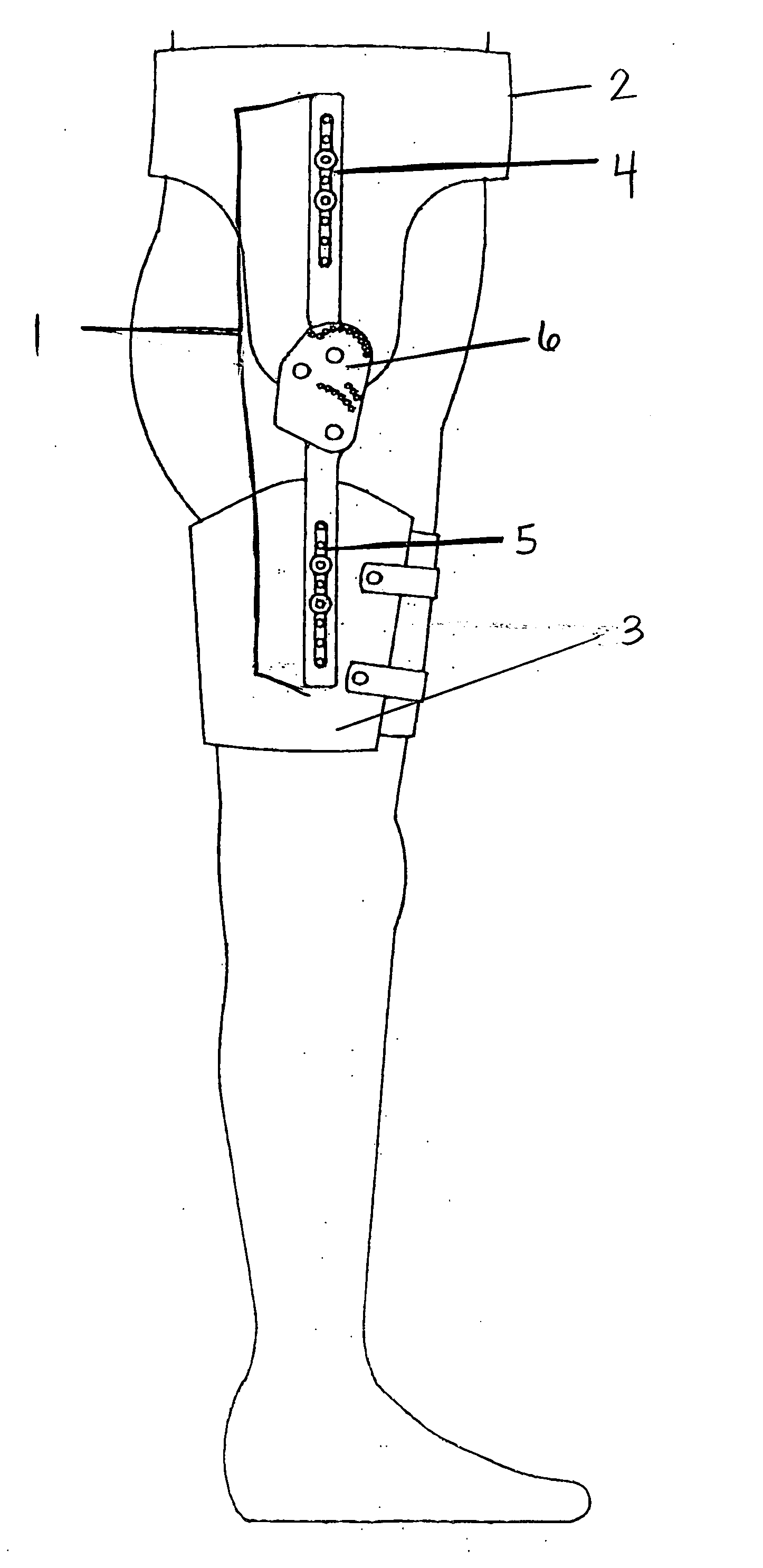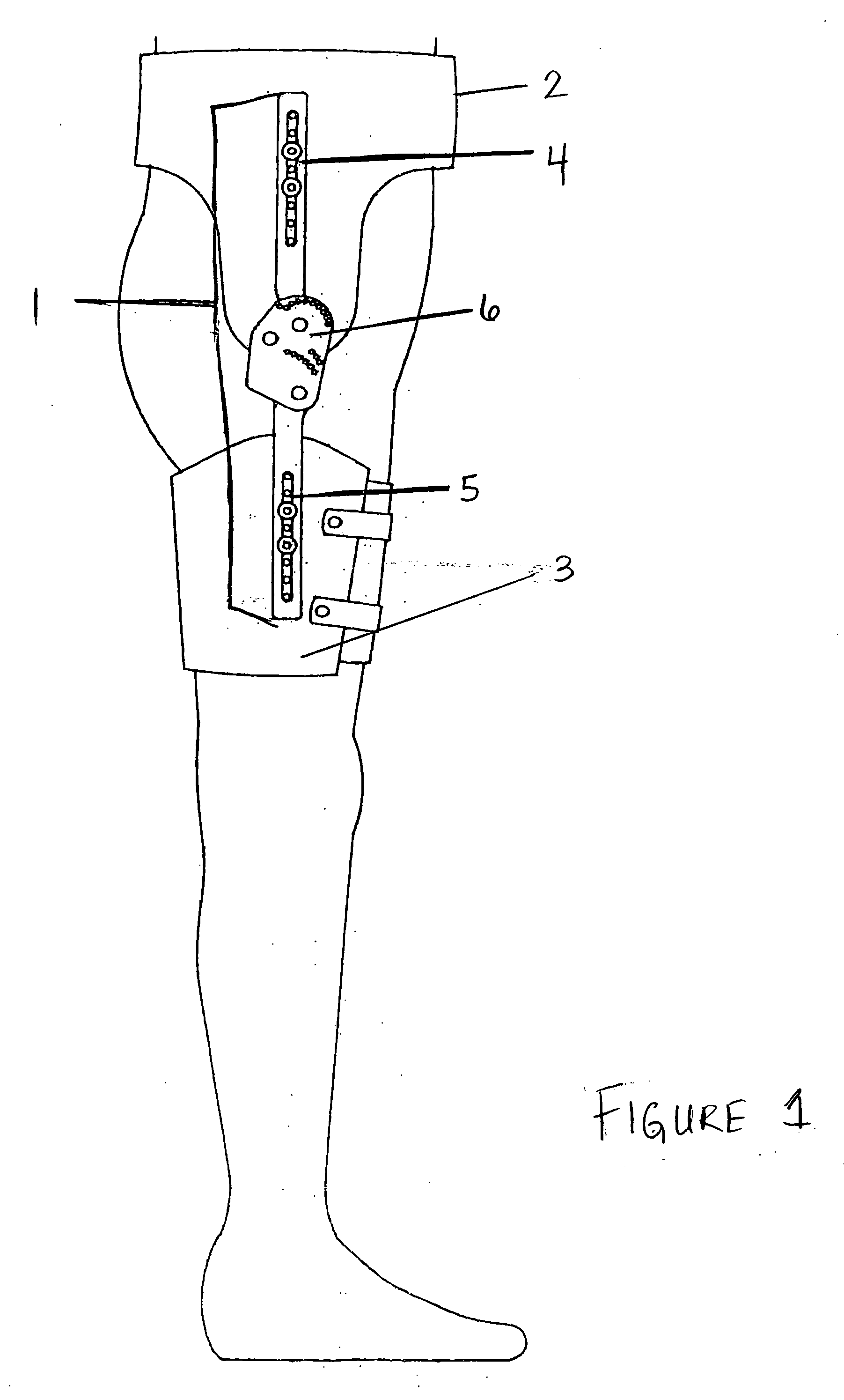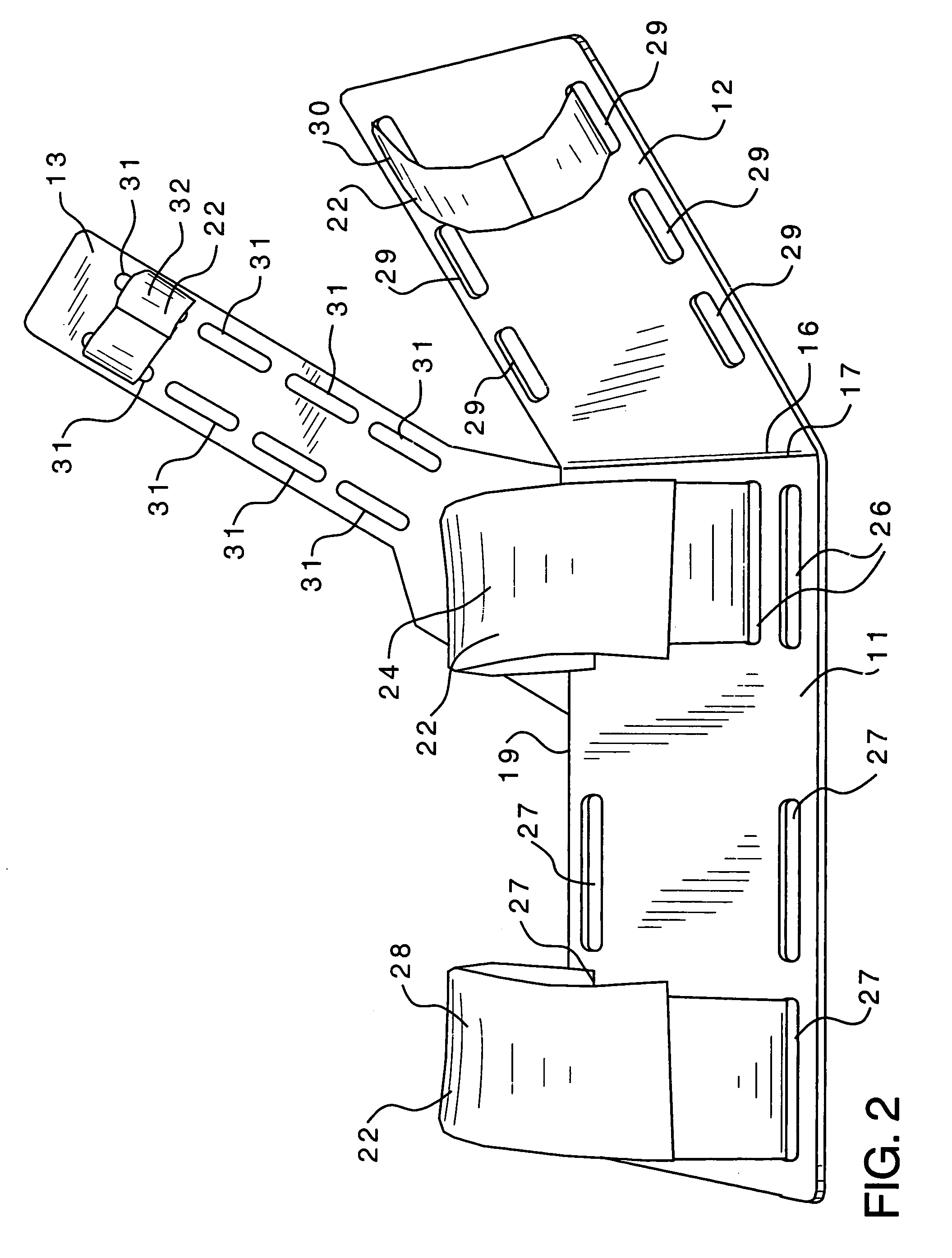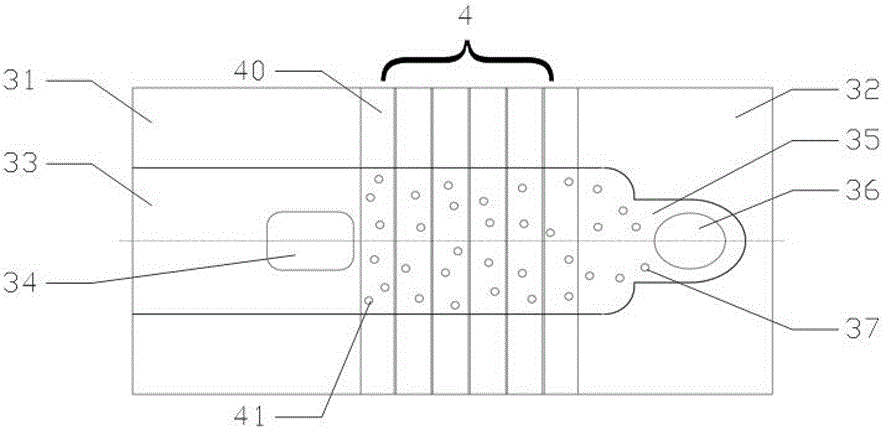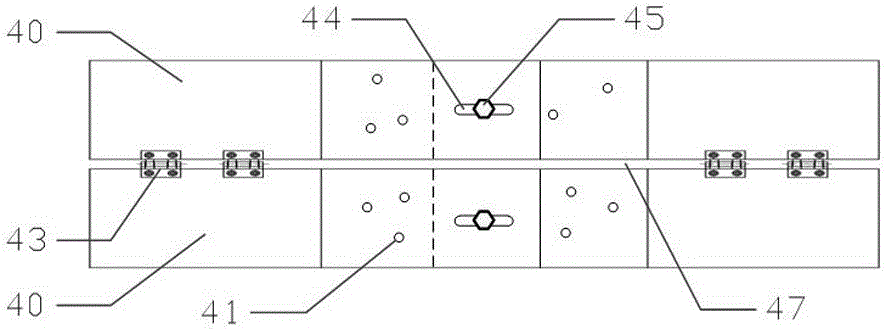Patents
Literature
Hiro is an intelligent assistant for R&D personnel, combined with Patent DNA, to facilitate innovative research.
649 results about "Buttress plate" patented technology
Efficacy Topic
Property
Owner
Technical Advancement
Application Domain
Technology Topic
Technology Field Word
Patent Country/Region
Patent Type
Patent Status
Application Year
Inventor
Buttress plate An orthopaedics fixation plate used to support bone which is unstable in compression or axial loading. Buttress plates are often used in the distal radius and tibial plateau to hold impacted and depressed fragments in position once they have been positioned.
Measuring apparatus for total knee replacement operation
ActiveUS20040122441A1Smooth movementEasy to disassembleJoint implantsDiagnostic recording/measuringMeasurement devicePhysical medicine and rehabilitation
An apparatus in a total knee replacement and arthroplasty operation for measuring a joint gap and ligament balance between a osteotomized surface at a femoral distal end and a osteotomized surface at a tibial proximal end. The apparatus is provided with a base 10, from which an engaging plate 14 extends by way of an arm, so that the engaging plate 14 contacts with the osteotomized surface at the tibial proximal end. A moving body 18 is vertically movably connected to the base 10, from which moving body 18 an arm 20 extends, to which arm a supporting plate 22 is rotatably mounted about a central axis. The supporting plate 22 has, at its top surface, a projected portion 48. to which an auxiliary guiding piece 50 is connected under a snap like fitted manner. A femoral component 52 is mounted, at its groove portion 54, to the osteotomized surface at the femoral distal end. The engaging plate 14 as well as the supporting plate 22 are under an offset arrangement with respect to the base and moving body, respectively.
Owner:ZIMMER KK
Interbody spinal fusion device
InactiveUS20070276375A1Promote bone fusionEasy maintenanceInternal osteosythesisBone implantLamina terminalisAnterior surface
A pair of flat support plates in a spinal fusion implant device contact and rest against the softer, central cancellous bone portion of respective endplates of adjacent vertebrae. Each support plate has a front template that is orthogonal to the plate and is bent to communicate with the anterior surface of the hard cortical endplate the vertebrae. A wedge-shaped support strut in a central channel between the two plates is configured to vary the distance between the support plates such that the height of the device proximate the anterior end is greater than the height of the device at the posterior end to maintain the natural lordosis of the spine. Channels formed on either side of the support strut are filled with bone graft material and contact the endplates of the vertebrae through large openings in the flat support plates to facilitate fusion.
Owner:RAPP LAWRENCE G
Partial joint resurfacing implant, instrumentation and method
InactiveUS20110009964A1Maximizes defect coverageMinimizing host boneSurgeryLigamentsLocking mechanismTarsal Joint
A partial resurfacing implant for use in repairing an articular cartilage defect site that includes a top articulating portion having a top surface that is configured with at least one radius of curvature to approximate the surface contour of the articular cartilage surrounding the defect site. The implant also includes a supporting plate that has a top surface and a bottom surface. The top surface is attached to the top articulating portion by a locking mechanism. The bottom surface of the supporting plate is constructed to facilitate the insertion of the implant into the defect site. Extending from the bottom surface of the supporting plate is at least one implant fixation portion. The at least one implant fixation portion is integrally connected to and is oriented about normal relative to the bottom surface. A method of repairing an articular cartilage defect with the partial joint resurfacing implant is also disclosed.
Owner:BIOPOLY
Preformed support device and method and apparatus for manufacturing the same
ActiveUS20090240342A1Increase the cross-sectional areaEliminate needConfectioneryWood working apparatusMammalian tissueEngineering
A device for making a seamless, anatomically contoured, prosthetic device for supporting or maintaining the position of mammalian tissue, organ or structure or a replacement thereof, such as a breast implant, includes a support plate, an ironing plate or a clamping plate and a core plate, each of which is made from a thermally conductive material. The support plate and the ironing or clamping plates have openings formed through the thickness thereof. The core plate has a core extending outwardly from a lower surface thereof which is received through the openings in the ironing or clamping plate and the support plate.
Owner:ETHICON INC
Fixing tool
InactiveUS6923407B2Avoid accidental removalEasy to disengageSnap fastenersStaplesEngineeringElectronic component
A fixing tool fixes and supports an electronic component on a board, and includes a fixing portion to be mounted on the board. The fixing portion has a post, an engaging piece formed at a distal end of the post and extending in a direction perpendicular to a projecting direction of the post, a wing piece extending from a proximal end of the post in two outward directions perpendicular to the projecting direction of the post, and an engaging projecting portion formed to project at a distal end portion of the wing piece. The engaging piece is inserted in a mounting hole formed in the board and abuts against a lower surface of the board when being rotated along an upper surface of the board. The wing piece abuts against the upper surface of the board to clamp the board together with the engaging piece. The engaging projecting portion is fitted in the mounting hole, when being located at a rotational position, to lock rotation of the fixing portion.
Owner:TAKEUCHI KOUGIYOU KK
Femoral compression device with support
A femoral compression device includes a pressure applying device for compressive bearing at a puncture site at a femoral artery of a patient and for applying pressure on the puncture site, a belt adapted to be fixed around the patient's body, and a base plate provided with first and second extensions, with the end of the first extension being closer to the pressure applying device than the end of the second extension and being provided with a fastener in the ends thereof for fastening of an end of the belt. The compression device also includes a support plate, which is attached to the second extension and which is adapted to bear against the patient's body, thereby compensating for the imbalance, which originates from the different extents of the two extensions, that otherwise would be present.
Owner:ST JUDE MEDICAL COORDINATION CENT
Implant assembly for proximal femoral fracture
ActiveUS20070219636A1Quality improvementEasy to fixInternal osteosythesisJoint implantsCoxal jointHead and neck
An implant assembly for proximal femur fracture comprises of a targeting device and intramedullary nail having plurality of proximal holes directed towards head and neck of femur wherein the axis of the holes makes an ante version angle of about 5° to 20° with the horizontal plane and at the same time axis of plurality of distal holes making 90° angle to longitudinal axis of said nail that holds the femur wherein said nail has reducing cross section area from thigh end to knee end with grooved knee end with anterior curvature even in short length version, plurality of proximal sliding hip pins with smooth shaft for collapsibility, triflanged end with mores taper to hold proximal femur, large head and washer to get impaction and plurality of distal locking screw to hold distal fragment of femur, optional buttress plate and barrels supporting lateral cortex to get controlled limited guided collapse.
Owner:THAKKAR NAVIN N
Spinal buttress plate
A spinal buttress plate includes a body having a top surface and a bottom surface and including an annular lip, a ledge, and a pair of teeth. The annular lip defines an opening. The annular lip and the opening are adapted to engage a screw for facilitating the securement of the buttress plate to one or more vertebrae. The ledge defines an aperture. The ledge and aperture are adapted to engage an instrument for positioning the buttress plate adjacent a spinal bone graft. The teeth are disposed in spaced-apart relation on the bottom surface of the body and are positionable within the one or more vertebrae.
Owner:K2M
Device for connecting a screw to a support plate
ActiveUS20050143742A1Easy to installEasy to removeInternal osteosythesisJoint implantsConstriction ringEngineering
The invention relates to a device which is used for solidly connecting a part such as a plate to an underlying support using at least one fixing element such as a screw. According to the invention, said fixing element takes the form of a threaded rod a screw which passes through a hole housing a ring belonging to the part, such that it is screwed into the support material. The inventive device is characterized in that the above-mentioned ring is a constriction ring comprising a non-circular outer profile which co-operates with the non-circular inner profile of the hole, which is in the part. In this way, when the ring is rotated in the hole and wedged in place therein, it is constricted, thereby blocking the threaded rod against movement with respect to the plate.
Owner:STRYKER EURO OPERATIONS HLDG LLC
Dual compression pad for surgical positioner units
ActiveUS7426930B1Contact flexibleGreat patient comfortOperating chairsOperating tablesSingle pairPatient comfort
A dual compression foam pad arrangement for use with surgical postioner devices is formed from a single pair of cloverleaf-shaped foam pieces. The foam piece in contact with the patient is more porous than the foam piece in contact with the positioner support plate for greater patient comfort. A solid plastic connector clip connects the pad arrangement with the surgical postioner support in press-fit relation.
Owner:INNOVATIVE MEDICAL PRODS
Adjustable floating plate lumber support
An adjustable lumbar support (100) adapted to be easily integrated into new or existing seat structures. Adjustable lumbar support (100) includes a lower floating plate (115) that is adapted to have a second, or upper, plate (130) hinged relative to the lower plate (115). The upper and lower plates have independently actuated support linkages (120 and 140) that are selectively actuated by first and second actuating mechanisms. In this manner, selective actuation actuator mechanisms associated with the lower and upper support plates (115 and 130) provides adjustment of a vertical dimension of the adjustable floating plate lumbar support. The degree of support provided by floating plates (115 and 130) is adjusted by adjusting the effective length of the support linkages.
Owner:ALFMEIER CORPORATIO
Intervertebral prosthetic devices and surgical methods
Intervertebral prosthetic devices and methods of implanting the same within an intervertebral space between adjacent vertebral bodies are provided. One device includes first and second components, each configured to engage a respective one of the adjacent vertebral bodies. Each component includes a vertebral support plate with a spherical segment protruding therefrom. The spherical segments are disposed to reside within nuclear recesses in the adjacent vertebral bodies when the device is implanted in the intervertebral space, and are configured with a common center of rotation which aligns with the natural axis of rotation of the adjacent vertebral bodies. An articulation member, which interfaces the first and second vertebral support plates, may be an articular ball and respective concave articular surface regions in the plates, or alternatively, a convex articular surface and a respective concave articular surface in the vertebral support plates of the first and second components.
Owner:WARSAW ORTHOPEDIC INC
Anterior pelvic support device for a surgery patient
ActiveUS20140059773A1Facilitate surgical procedureFacilitate surgeryOperating tablesRigid tablesInsertion stentChest region
The improved positioning device, for use in hip, pelvis or bariatric surgery, securely and safely supports a morbidly obese patient lying in the lateral decubitus position at one side of an operating table so the surgeon may stand close to the anterior side of the patient. The support device includes a double-ended bracket having a pair of oppositely positioned padded end portions secured to an angular bracket post adapted to securely mount to an operating table via a question mark-shaped bracket. The angular bracket arm vertically adjusts to support the patient on one side, with the padded end portions applied to bony prominences such as the symphysis pubis and the lower side anterior superior iliac spine. The support device is used in combination with a posterior pelvic support plate, and a pair of anterior-posterior chest support plates to retain the patient in a secure and stable manner during surgery.
Owner:CARN RONALD M
Knee brace
ActiveUS20070106191A1Non-surgical orthopedic devicesPhysical medicine and rehabilitationKnee support
A knee brace, for use by athletes or others requiring protection and support of the knee, that includes an elastic base that covers the knee and adjacent portions of the leg of a person, a mesh support layer covering an upper portion of the base and extending below the knee when the brace is worn, and a below-knee support panel made of an inelastic sheet material. The mesh support layer can have a symmetric construction, and can have overlapping ears, although this is not required. Alternative embodiments of a knee brace according to the present invention can include a mesh support layer that covers the patella tendon, or a mesh support layer that encircles the kneecap.
Owner:MUELLER SPORTS MEDICINE
Device for connecting a screw to a support plate
The invention relates to a device which is used for solidly connecting a part such as a plate to an underlying support using at least one fixing element such as a screw. According to the invention, said fixing element takes the form of a threaded rod a screw which passes through a hole housing a ring belonging to the part, such that it is screwed into the support material. The inventive device is characterized in that the above-mentioned ring is a constriction ring comprising a non-circular outer profile which co-operates with the non-circular inner profile of the hole, which is in the part. In this way, when the ring is rotated in the hole and wedged in place therein, it is constricted, thereby blocking the threaded rod against movement with respect to the plate.
Owner:STRYKER EURO OPERATIONS HLDG LLC
Post operative knee brace with uniform symmetrical lateral adjustment
A knee brace incorporates an upper attachment assembly received anteriorly on a thigh of and a lower attachment assembly to be received on a lower leg of a patent. Medial and lateral longitudinal supports are interconnected at medial and lateral hinges. An outer lateral arcuate support plate is attached to a first end of the lateral longitudinal support and an outer medial arcuate support plate is attached to a first end of the medial longitudinal support. Symmetrical lateral adjustment is accomplished with an anterior arcuate support plate and a lateral adjustment ratchet mounted to the anterior support plate. A lateral adjustment strap extends from the lateral arcuate support plate through the lateral adjustment ratchet. A lateral adjustment strap extends from the medial arcuate support plate through the lateral adjustment ratchet and rotation of the lateral adjustment ratchet symmetrically expands or retracts the lateral adjustment straps.
Owner:UNITED SURGICAL ASSOC
Exercise device and method
InactiveUS7909747B1Load accuratelyMore aware of any compensation patternsStiltsFrictional force resistorsTibiaFoot supports
A method and apparatus for exercise of the gluteus medius and gluteus minimus muscle complex against resistance in internal rotation, the tibialis posterior in internal rotation and inversion, the piriformis muscle and its synergists in external rotation and the peroneal muscles in external rotation and eversion is disclosed. The apparatus is comprised of a stable base having a rotatable foot support plate mounted on the base upward at a predetermined angle from the horizontal in order to dorsiflex the user's foot. Means to adjust the rotational resistance of the rotatable foot support plate is provided. The device includes a back support to assist in maintaining the user's pelvis in a neutral position. The device provides internal and external resistance to isolate and exercise the gluteus medius and gluteus minimus muscle complex or the piriformis and synergists while the user is in a standing position. It further provides internal and external resistance to exercise the tibialis posterior and the peroneals in either the standing or seated position.
Owner:LACAZE JOE
Surgical fixture device and method for supporting a patient during surgery
A hip positioner for hip surgery (e.g., total hip arthroplasty surgery) is disclosed in which the patient is in a lateral position with the hip upon which surgery is to be performed facing upwardly. The patient lies on a support board having a plurality of holes therein with pins inserted in selected ones of these holes so as to prevent the patient from rolling on to the patient's back. A stanchion is inserted in at least one of the holes on the front of the patient at or above the level of the patient's hips and a support arm extends horizontally from the stanchion toward the upper hip. A pad is carried on the distal portion of the support arm for positive engagement with a desired anatomical feature of the patient (preferably the crest of ilium of the patient's upper hip) thereby to hold the patient in such desired lateral position during surgery.
Owner:WHITESIDE LEO A
Footwear with tapered heel, support plate, and impact point measurement methods therefore
An article of footwear having a tapered heel in part defining an impact point associated with a padded impact zone which first strikes a surface upon a foot plant and a plate embedded within a sole of the article such that the plate supports the heel of the sole from flexing or collapsing, the impact point positioned anterior a pivot point of the wearer's ankle. In one aspect the plate avoids positioning at a lateral midfoot area of the sole to allow for impact zone padding and promotes avoiding or reducing heel strike forces when walking or running.
Owner:STIEN KARL
Spinal-column buttress plate assembly and method for attachment
InactiveUS20050137596A1Strengthen the strength of attachmentImprove mechanical stabilitySuture equipmentsInternal osteosythesisSpinal columnBone screws
A spinal-column (e.g., cervical-column) buttress plate assembly and method for attaching together first and second vertebral bodies of a spinal column (e.g., cervical column) of a medical patient. Bone screws are inserted into the vertebral bodies at optimum locations on the vertebral bodies. A buttress plate having an elongated slot is placed on the vertebral bodies so that the heads of the bone screws are positioned in the elongated slot. Inner screws are threaded into the bone screws to expand their heads against the opposing edges of the elongated slot thereby attaching the buttress plate to the vertebral bodies.
Owner:UWAYDAH MUNIR
Proximal Tibial Osteotomy System
A support plate, for supporting the two parts of a tibia after a tibial osteotomy, is generally in the shape of a T with a stem having top and bottom ends and a cross piece extending across the top end of the stem. The support plate has a rear surface arranged to contact the tibia. The rear surface of the stem is convex in its central longitudinal plane over a first region of the plate, and the rear surface of the cross piece is concave in its transverse plane.
Owner:OXFORD UNIV INNOVATION LTD
Implant assembly for proximal femoral fracture
ActiveUS8734448B2Quality improvementEasy to fixInternal osteosythesisJoint implantsThighProximal point
An implant assembly for proximal femur fracture comprises of a targeting device and intramedullary nail having plurality of proximal holes directed towards head and neck of femur wherein the axis of the holes makes an ante version angle of about 5° to 20° with the horizontal plane and at the same time axis of plurality of distal holes making 90° angle to longitudinal axis of said nail that holds the femur wherein said nail has reducing cross section area from thigh end to knee end with grooved knee end with anterior curvature even in short length version, plurality of proximal sliding hip pins with smooth shaft for collapsibility, triflanged end with mores taper to hold proximal femur, large head and washer to get impaction and plurality of distal locking screw to hold distal fragment of femur, optional buttress plate and barrels supporting lateral cortex to get controlled limited guided collapse.
Owner:THAKKAR NAVIN N
Interbody spinal fusion device
InactiveUS7887588B2Promote bone fusionEasy maintenanceInternal osteosythesisBone implantAnterior surfaceImplanted device
A pair of flat support plates in a spinal fusion implant device contact and rest against the softer, central cancellous bone portion of respective endplates of adjacent vertebrae. Each support plate has a front template that is orthogonal to the plate and is bent to communicate with the anterior surface of the hard cortical endplate the vertebrae. A wedge-shaped support strut in a central channel between the two plates is configured to vary the distance between the support plates such that the height of the device proximate the anterior end is greater than the height of the device at the posterior end to maintain the natural lordosis of the spine. Channels formed on either side of the support strut are filled with bone graft material and contact the endplates of the vertebrae through large openings in the flat support plates to facilitate fusion.
Owner:RAPP LAWRENCE G
Shadow skull mounting apparatus
ActiveUS9248696B2Easy to shapeIncrease in sizeCandle holdersLighting support devicesSingle supportEngineering
Owner:NORTHEAST MACHINERY NETWORK
Multifunctional splint for clinical use in orthopedics
The invention discloses a multifunctional splint for clinical use in orthopedics. The multifunctional splint comprises a bottom plate, wherein the upper surface of the bottom plate is fixedly connected with the lower surface of a first splint through a support plate; the right side surface of the support plate is fixedly connected with the left side surface of a slider through a first telescopic device; the slider is glidingly connected in a slide groove formed in the upper surface of the bottom plate; the upper surface of the slider is fixedly connected with a second splint. According to themultifunctional splint for clinical use in orthopedics, under cooperation of the first splint, the second splint, second telescopic rods, second springs, permeable plates, a first telescopic rod, a first spring, the slider, the slide groove, a traction rope, a first rotating shaft, a first bearing, a take-up spool, a fixing plate, a second bearing, a second rotating shaft and a handle, multiple functions are realized, breathability of the splint is guaranteed, and clamping distance between the first splint and the second splint can be adjusted, so that work of a medical worker is facilitated.
Owner:姜凯
Buttress plate system
Systems, devices and methods are provided for assisting in spinal stabilization. A buttress plate system is provided that can include an intervertebral spacer, a buttress plate, a spinal screw, and an insertion instrument. The buttress plate is configured to extend across at least a part of an intervertebral space to block or prevent an intervertebral spacer from backing out of the intervertebral space when the buttress plate is secured to the spine. The buttress plate includes a curved plate body having an aperture therethrough for receiving a spinal screw. The buttress plate also includes a pair of engagement members in the form of spikes to help stabilize the buttress plate relative to the spine prior to securing the buttress plate to the spine. The buttress plate can be coupled to an insertion instrument that is used to guide the buttress plate to a desired position adjacent the spine. Once in a desired position, a spinal screw can be delivered through the insertion instrument and through the aperture of the buttress plate to secure the buttress plate to the spine. The insertion instrument thus helps to properly position the buttress plate adjacent the spine and to deliver a spinal screw toward the aperture of the buttress plate.
Owner:SPINAL USA
Alignable coupling assembly for connecting two prosthetic limb components
An alignable coupling assembly embodiment for coupling distal and proximal prosthetic components includes a pair of parallel circular plates rotatably disposed in the circular receptacle of a support plate. The circular plates are configured such that they can be unpressed or a pressed. The unpressed condition allows rotation of the paired plates and the pressed condition prevents such rotation by way of a first friction lock. The paired circular plates further have a rectangular slot into which a longitudinal connector is slidably disposed, and which is subject to a second friction lock that prevents sliding when the connector is pulled distally. Rotational movement of the plates and sliding movement of the connector in the slot cooperate to allow its positioning at any point within an anterior-posterior / lateral medial grid centered on the longitudinal axis of the proximal prosthetic component. A distal pull on the longitudinal connector engages both first and second friction locks.
Owner:LIM INNOVATIONS
Tricentric orthotic hip joint and related hip brace
An orthotic hip joint comprising three articulating gears mounted on a support plate. The gears include a top gear; a center gear; and a bottom gear arranged in a vertical configuration wherein the gears function to permit a range of motion from 0 degrees to 90 degrees. An orthotic hip brace comprised of an upper brace for placement around the pelvic area; a lower brace for placement around the thigh area; and a hip joint comprising three articulating gears for connecting said upper and lower brace. The hip joint permits the upper brace to move with the user and does not migrate upward during sitting or bending at the hips.
Owner:SAUBER HERSCHEL +2
Surgical hand support
A surgical hand support for performing surgical procedures on the volar side of the human thumb. The support includes an elongate forearm support plate with a hand support plate and a thumb support plate extending from this forearm support plate. The hand support plate and thumb support plate are dimensioned for respectively engaging the back of an individual's hand and thumb. The hand support plate extends upwardly from a wrist bend on the forward edge of the forearm support plate at an obtuse angle. The thumb support plate extends upwardly from a side edge of the forearm plate adjacent the wrist bend at an obtuse angle and the thumb support plate also extends forward from the side edge of the forearm plate at an obtuse angle and adjustable straps are provided for securing the forearm to the forearm plate, the hand to the hand plate and the thumb to the thumb plate whereby the volar side of the thumb is suitably presented for surgery.
Owner:MENGATO RICHARD A
Controlled stent for kyphotic surgery
ActiveCN106377381AReduce secondary damageImprove comfortDiagnosticsOperating tablesButtocksInsertion stent
A controlled stent for kyphotic surgery is used for ankylosing spondylitis kyphosis osteotomy reduction surgery, and comprises a rectangular front bedplate arranged on a base for supporting the head and shoulders of a patient, a rectangular rear bedplate for supporting the buttocks and legs of the patient, and a curved plate for supporting the chest and abdomen of the patient, wherein the curved plate is formed of a plurality of support plates on parallel hinges by connection, is horizontally connected and fixed on the base through a height adjustment mechanism, and can move up and down under the drive of the height adjustment mechanism. Through the arrangement of the curved plate structure for supporting the chest and abdomen, the controlled stent for kyphotic surgery, provided by the invention, realizes digital and automatic adjustment of the spinal curvature of a patient according to the need of a surgery, the operation is simple and quick, the control precision is high, time-consuming is less, secondary damage to the patient is small, and the patient's comfort is high.
Owner:GENERAL HOSPITAL OF PLA
Features
- R&D
- Intellectual Property
- Life Sciences
- Materials
- Tech Scout
Why Patsnap Eureka
- Unparalleled Data Quality
- Higher Quality Content
- 60% Fewer Hallucinations
Social media
Patsnap Eureka Blog
Learn More Browse by: Latest US Patents, China's latest patents, Technical Efficacy Thesaurus, Application Domain, Technology Topic, Popular Technical Reports.
© 2025 PatSnap. All rights reserved.Legal|Privacy policy|Modern Slavery Act Transparency Statement|Sitemap|About US| Contact US: help@patsnap.com
